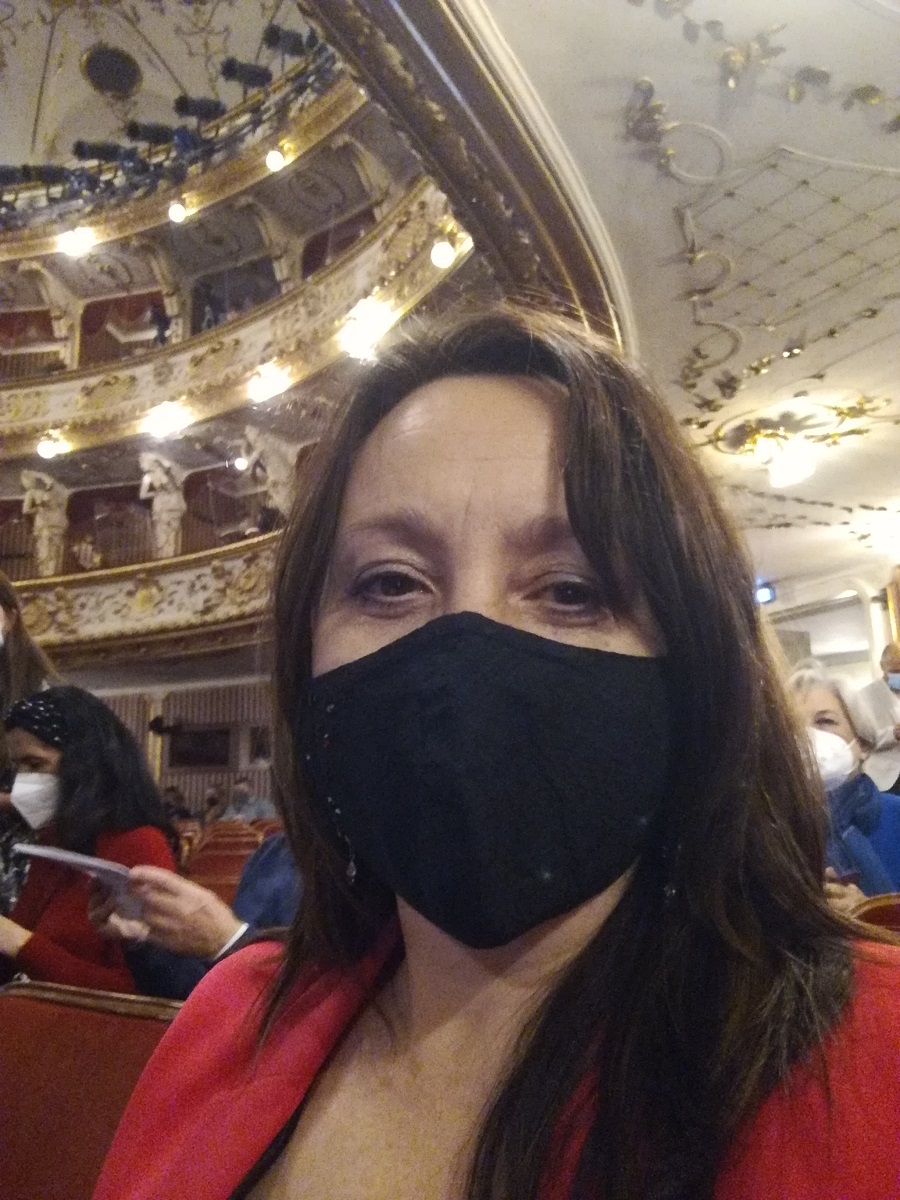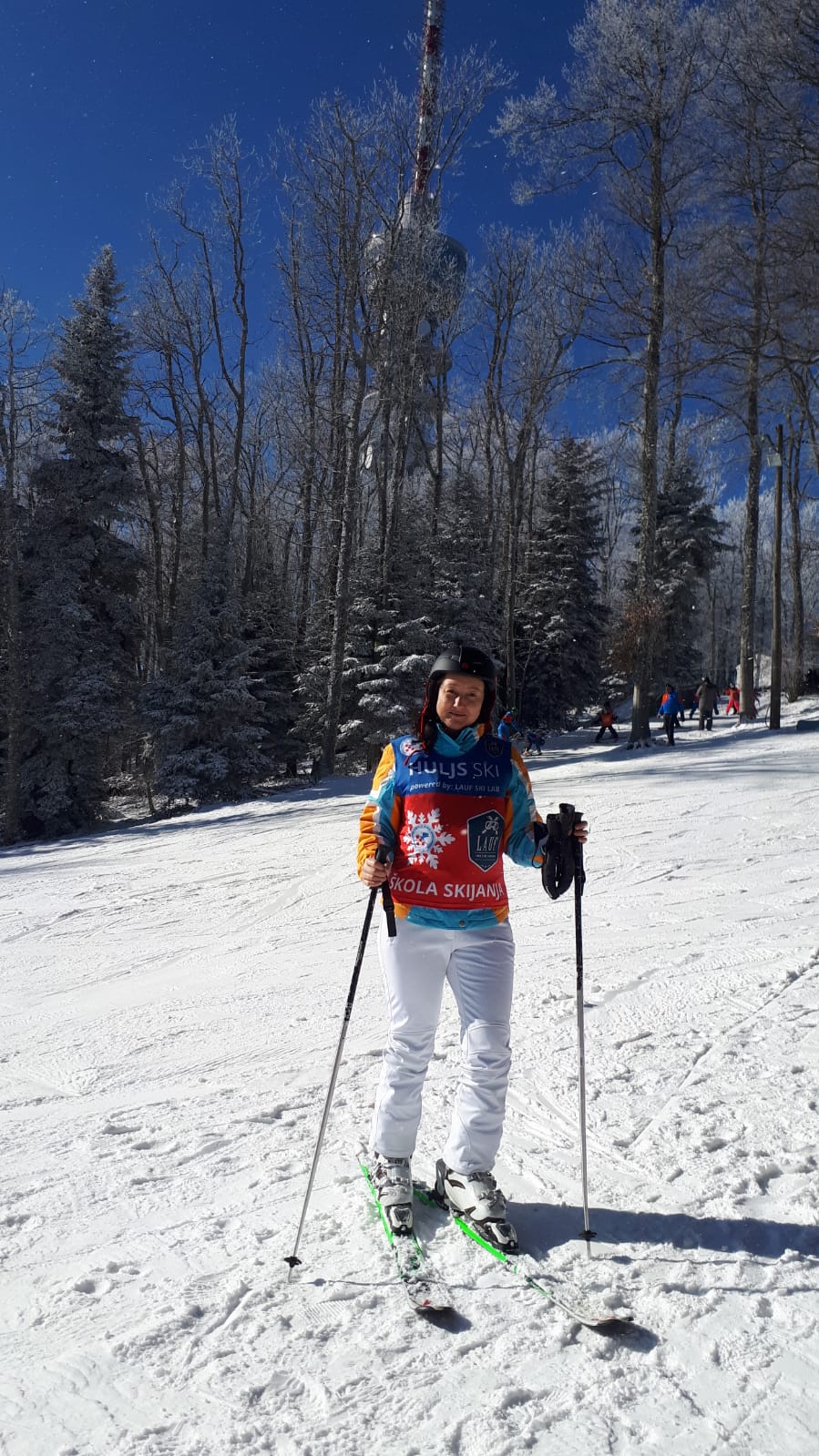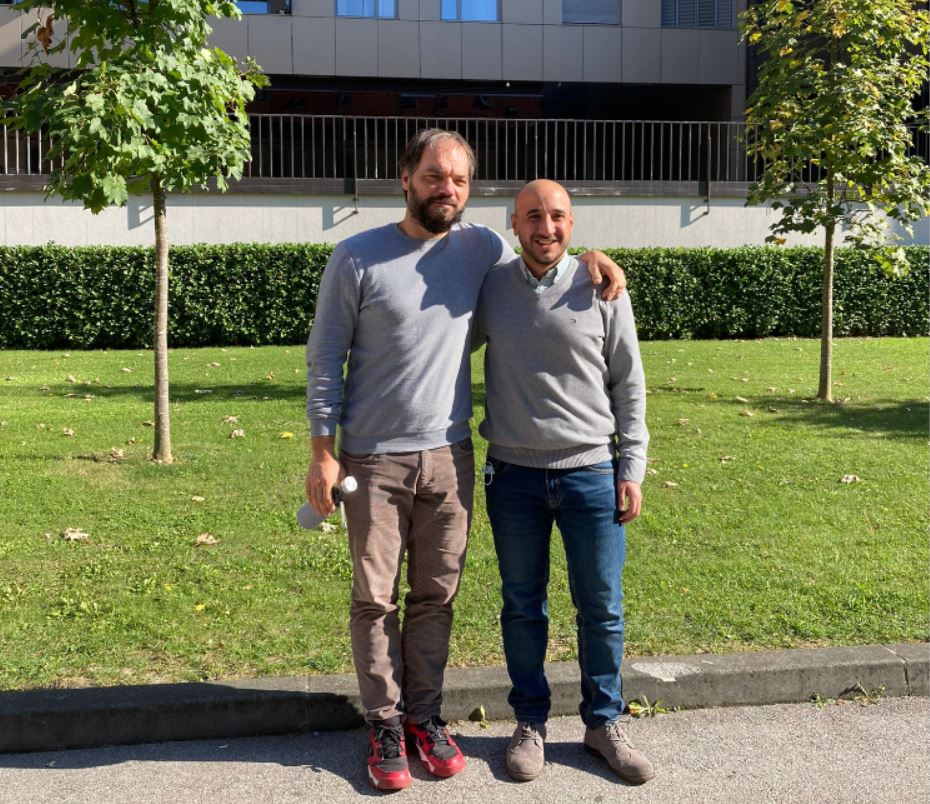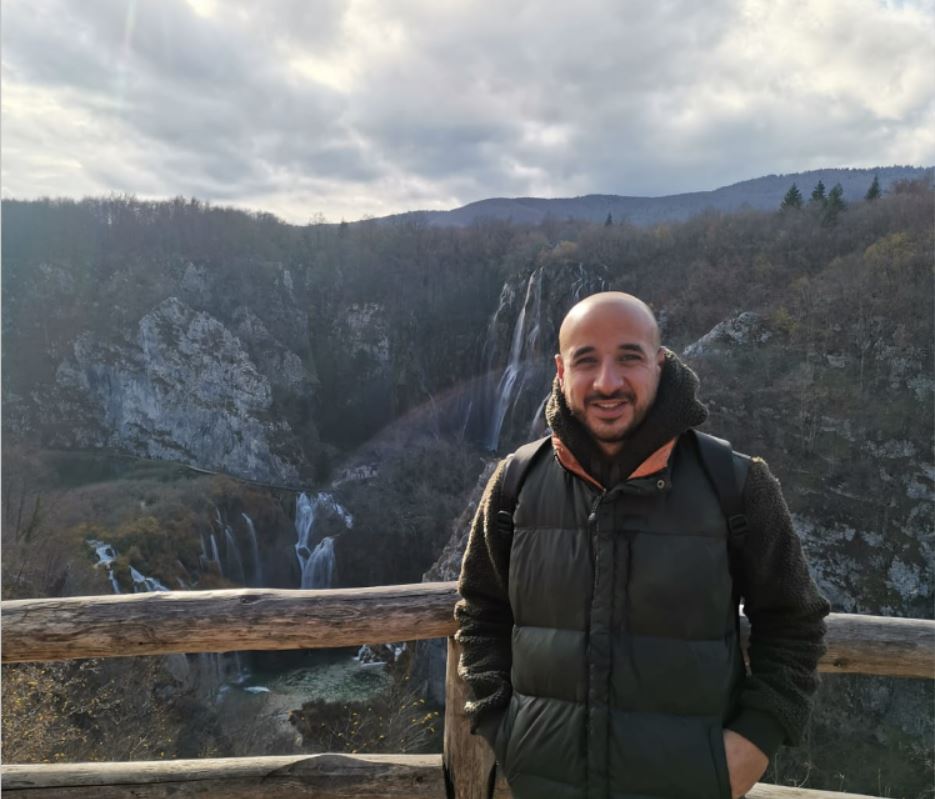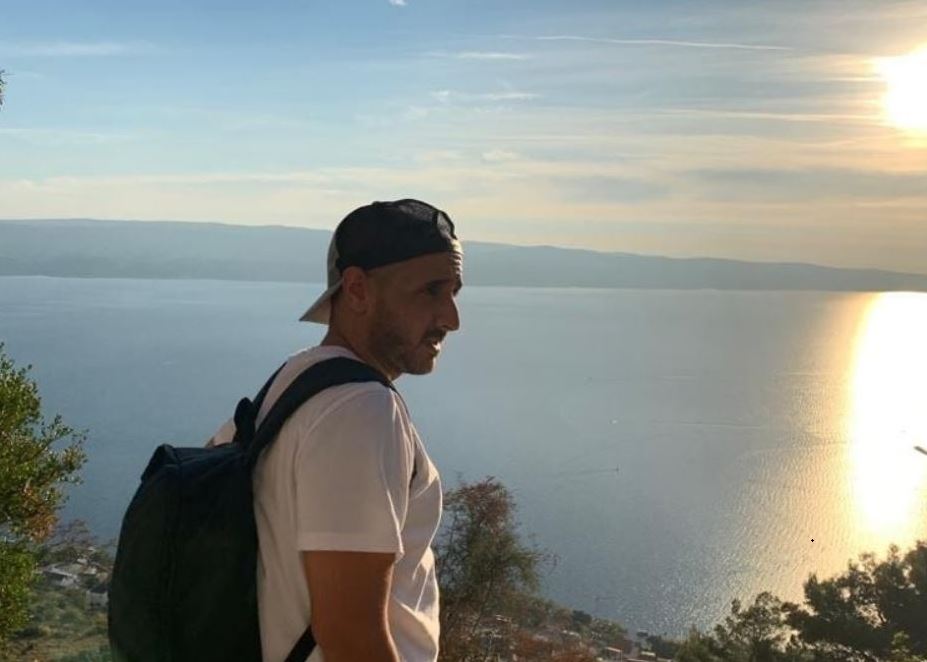Algebra Students Use Technology to Map Wineries and Promote Art
October 24, 2022 - HAVE you ever talked to an incredibly smart young person and wondered "Where was I at that age"? Algebra students will make you ask that question.
We present you the fifteen Algebra students, who decided to change their surroundings for the better with the help of advanced technology while working on their degrees. These are the future Algebra graduates who, as part of the Innovative Project course, come up with ideas and products that aim to change the world today and tomorrow!
One of the teams we present to you today considered how to make it easier and simpler for all wine lovers to find wines and wineries in Croatia. They came up with a digital wine atlas called Wineata, which makes it easier for wine lovers to access information about quality wines, wineries and wine tours available throughout Croatia. The project is closely monitored by mentors - Stella Antolović and Silvio Papić, and the team is formed by nine students from different areas of Algebra graduate studies - Karlo Jakobović, Marko Sabolić, Jurica Slovinac, Luka Žgrablić, Suraj C. R. C. Reddy, Elma Melkić, Jigisha H. Shah, Yacine Akki and Celina Wedershoven.
1. You came up with an application that is a wine atlas of sorts - where did you get the idea?
At the beginning of this story, we talked a lot about possible ideas and projects that could be realized, but together we agreed on the fact that wine lovers on the market cannot find interesting wineries or information about different varieties of wine so easily. At the introductory lectures of the Innovative project course, we had the opportunity to further develop our idea - where we agreed together that this is the right project for us and what the market and consumers need.
2. What challenges did you face during the development of Wineata?
It is challenging to predict what will happen in the market after the COVID-19 pandemic. We are aware that the research of the wine world depends significantly on the situation in the market, therefore the biggest challenge we have faced is the collection of all relevant data on time. However, when the team is committed and passionate, things work. Another challenge was the cooperation of different team members from different fields. Teamwork is our biggest advantage, once we managed to get along, understand and accept the common direction in which the project was to develop, we quickly came up with interesting solutions.
3. You conducted a survey that served as a starting point for creating the application - what did the results show? Does Croatia need an application that will make it easier to find quality wine destinations?
The survey results are very interesting. We created one survey for the Croatian market and one customized survey for tourists. Of the total number of respondents, 7.6% drink wine every day, 9.7% drink wine three times a week, and 22.4% drink wine once a week. We can conclude that almost half of the respondents, more precisely 39.7% of them, drink wine at least once a week. When asked where they most often buy wine, 52.7% answered that they buy in large stores (supermarkets), 15.6% answered in wineries, and 11.4% in wine shops. This is good news for our application. This means that respondents visit wineries and wine shops, and we can provide them with a better experience of visiting these places. The aim of this research is to understand their habits and how we can improve their wine experiences through our application. Of the total number of respondents, 69.2% said they would like to visit wineries in Croatia, and 21.1% of respondents were not sure. Of the total number of respondents, 17.3% would use an application that would help them find wineries and their offers in Croatia, 35.4% agree, and 22.8% are unsure. From this question, we can recognize that there is potential for our application and that users are willing to use this type of application.
4. Wineata was designed by an interdisciplinary Algebra team - how did this collaboration work?
We believe that no business works as well as it could with just one specialized function or with the same way of thinking. This was a unique opportunity to experience in practice what it's like to work in an interdisciplinary team because we are sure that in the future such an opportunity will be presented to us in the business world, and this interesting project prepared us for that situation.
5. Do you think the market will recognize the value of Wineata and how do you plan to approach your target audience?
We believe that the market will recognize the benefits offered by Wineata, mostly because it will be created with the purpose of helping consumers navigate the world of wine. Wineata will combine offline and online experiences and provide relevant and up-to-date information to consumers. It will combine different moments of consumption, such as daytime or evening gatherings with wine or a combination of food and wine. Wineata is there for the consumer, ready to provide them with personalized advice.
6. Do you have plans for an expansion beyond the borders of Croatia?
Of course, we plan to expand beyond the borders of Croatia in the future. We believe that this project has great potential for acceptance in other markets as well. According to Statista, the consumption of wine in the world in 2021 is estimated at 236 million hectoliters, which is a decrease compared to 241 million hectoliters in 2019. We believe that the market will recover during 2023 and that we will attract the attention of consumers on the global market with our interactive wine list of the world. Consumers will be able to explore interesting locations and events near them, read reviews and learn about wines. Our platform will be completely personalized for the user who uses it, which we believe consumers will recognize as a benefit and use it every day.
The second team of the Algebra graduates that we are introducing is the interdisciplinary team of Krivovizija (crooked vision), which works on an artistic platform and functions on the basis of blockchain technology. If you are wondering what blockchain is and how it can be used to develop art - read on! These ingenious young people have made it possible for artists to upload their artwork and create their digital portfolios on their platform. However, the platform is not intended only for artists, but also for buyers of art and the interested public. The team consists of six Algebra students: Tomislav Čavala, Fran Bartolić, Ena Saško, Ivan Popović, Karlo Bertina and Maxime Coutin, backed by mentors Karlo Josić and Halida Sarajlić. Ivan Popović answered on behalf of the team, who explained to us what blockchain is and how they connected blockchain and art.
1. Can you briefly explain to us how Krivovizija was created and what it brings to its potential users?
The project actually had a development path which was quite different at the beginning from the current version, i.e. the first variants of the idea were much more focused on blockchain technology, motivated by the fact that the term "NFT" has exploded in popularity in the last few years. However, as we were developing the idea, we ran into several obstacles and we came to the realization that ultimately we want to create something that will have integrated modern digital technology, but above all something that will create long-term value for users. What our idea brings to its users is simply the possibility of learning, creating "digital works", presenting them on the global market, and freely interacting with other users who share interests in the same things. In this specific case, it refers to digital arts such as pictures, photographs, comics, etc...
2. What did team collaboration look like during the creation of Krivovizija? Who came up with the name?
Like any project, we believe that there are countless good ideas, but no matter how good an idea is, in the end, everything will depend on some kind of compatibility and interaction of the team members who bring it to life. We were lucky that a group of people who have adequate knowledge and motivation to build something of this magnitude got together. As for the name, Krivovizija is primarily our team's "code" name, and the source of the name is not overly praiseworthy if we are honest. If we had known that someone would ask us this, we probably would have chosen something else. Basically, one of the team members came up with the information that there is a website that randomly generates words that are somehow inspired by terms that were used in the former Yugoslavia. There were quite a few options, but we agreed that Krivovizija was the best choice.
3. Krivovizija is built on blockchain technology. Explain to us laypeople what exactly blockchain technology is.
Here we will mention blockchain in two contexts. In its basic form, it is a technology that refers to the decentralized storage of information that is impossible to change or copy. Since that may sound a bit abstract, we will mention another context related to our project. So, simply put, we use blockchain technology primarily to protect the ownership of our users' digital assets. If, for example, someone buys a digital photo, we will ensure that the owner is the sole owner and that someone cannot show up somewhere with a copy and claim to own the original.
4. How did you decide to develop a platform that is intended specifically for artists and art lovers?
The popularity of digital art has grown exponentially over the past few years, technology has become more accessible, there are more and more talented people, and the global COVID situation has significantly accelerated the transition of a large number of our activities to digital spheres. In addition, studying the current state of the market, we realized that there is a great opportunity to build a platform of this type, and we believe that now is the ideal time for such an undertaking.
5. Where do you see your advantage over your competitors? How will you stand out in the market?
Currently, there are several somewhat similar platforms, but all of them are related to a specific domain, so none of them is adequate to be used by a wider group of users possessing different talents. Some of the platforms are focused exclusively on photography, some only on 3D animation, etc. But the most important thing to mention is that the social aspect is not in focus in any of them or it is extremely limited, and we consider that our biggest advantage. So, in addition to the aforementioned blockchain technology that we use in terms of protection, we want our users to use the platform as a social network where they can learn about the tools they are interested in, present their talents globally, communicate openly and create interest groups, and ultimately make a living from their work.
Algebra International Summer School: Where Knowledge and Different Cultures Melt Together
August 4, 2022 - There are many reasons to visit Croatia this summer - meet the Algebra International Summer School.
Over the summer many students take (at least a temporary) break from studying and exams, seasonal jobs and enjoy more free time, some believe the summer sunshine is the perfect ingredient to get inspired and learn about new and interesting things.
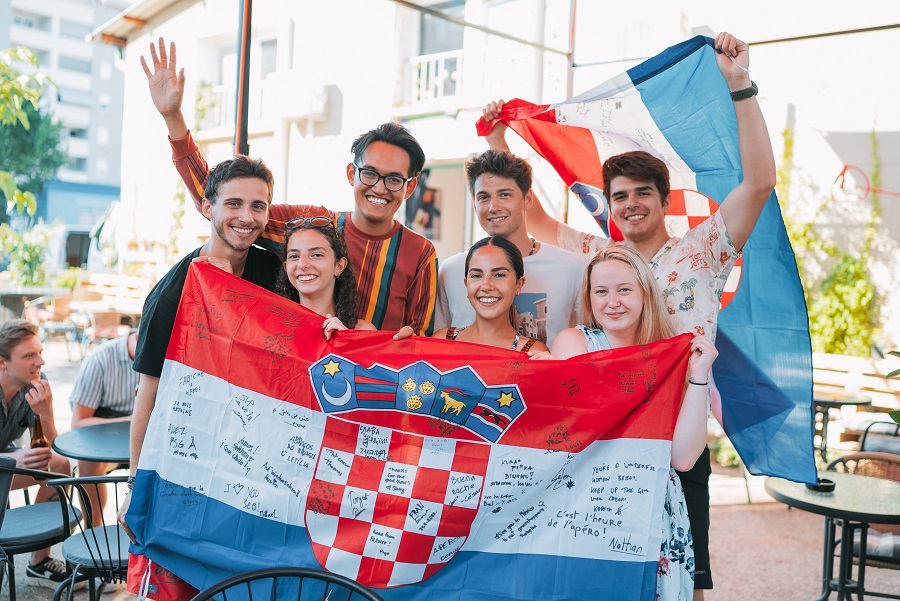
Almost a hundred students from all over the world decided to join Algebra's experts at the sixth edition of Algebra International Summer School from July 3 to 29. Students from France, Germany, Turkey, Ukraine, Denmark, Canada, USA, Mexico and Brazil came to Croatia to learn all about the latest trends in the world of digital technologies.
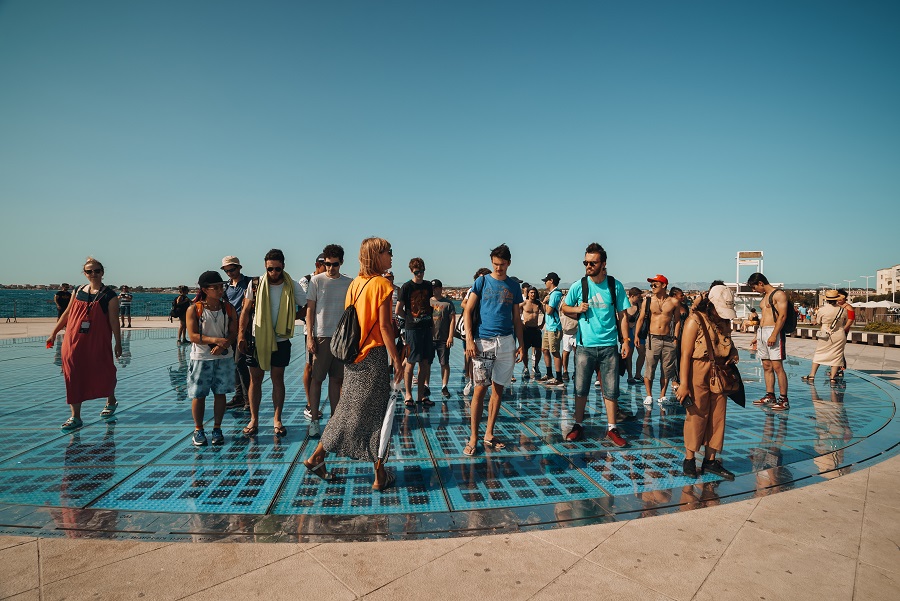
Apart from a new set of digital skills for their CV, the international environment was a unique benefit for students to develop soft skills of teamwork on the global market. In their free time, students had the opportunity to enjoy the sun, sea and other beauties of Croatia as a top European summer destination.
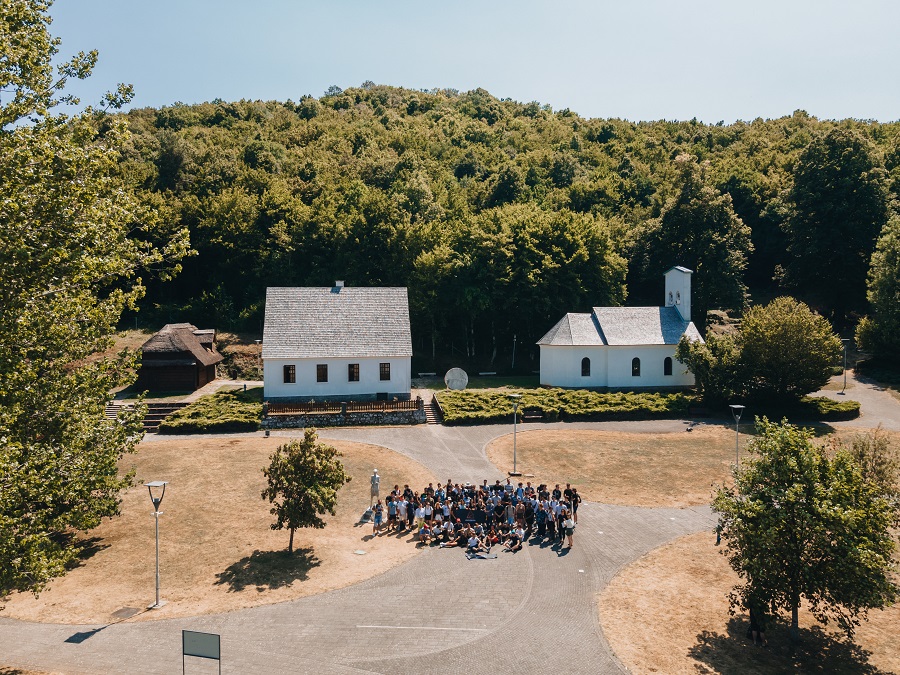
Algebra's International Summer School consists of as many as seven courses with an additional course on Croatian language and culture. This year, students could choose between very different professional courses and expand their knowledge in Artificial Intelligence, Cyber Security, Data-Driven Storytelling, Management and Entrepreneurship for IT professionals, Mobile Application Development, Digital Marketing and Experimental Drawing. However, the lectures and content at the International Summer School are far from standard and usual. The students had the opportunity to upgrade their skills and knowledge and learn from professionals from leading Croatian and global companies in the field of digital technology, such as Bornifght, Degordian and Q Agency. In addition, they tested and demonstrated their own talents and capabilities. Students in the course of Experimental Drawing presented their talent and skills with their pop-up exhibition at the end of the second week of lectures on Algebra's new campus in Zagreb.
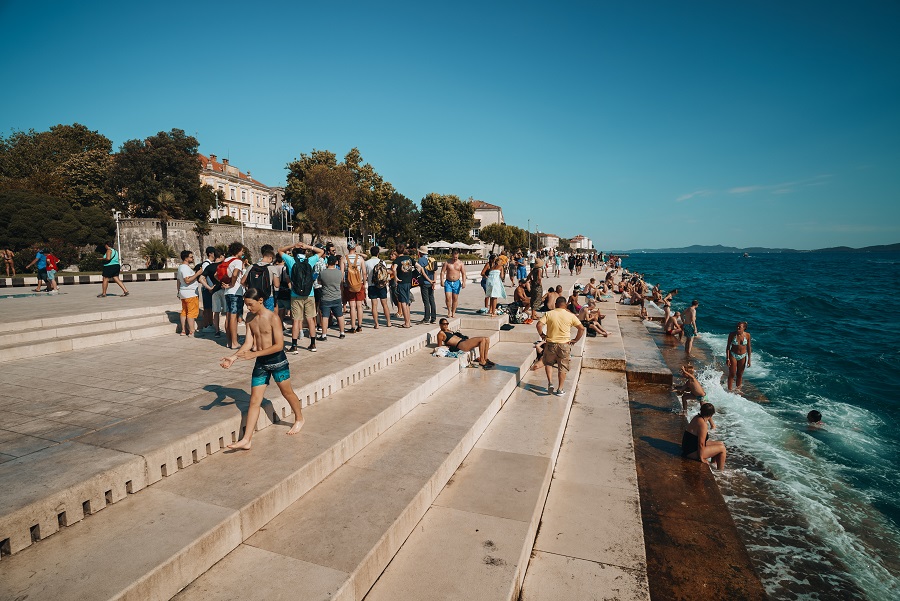
The Summer School programme was made perfect by our spend a week in Zadar – one of the most beautiful cities on the Dalmatian coast, thanks to the cooperation with the University of Zadar. It doesn’t get better than attending courses with the backdrop of the most beautiful sunset in the world and spending free time at sunny beaches!
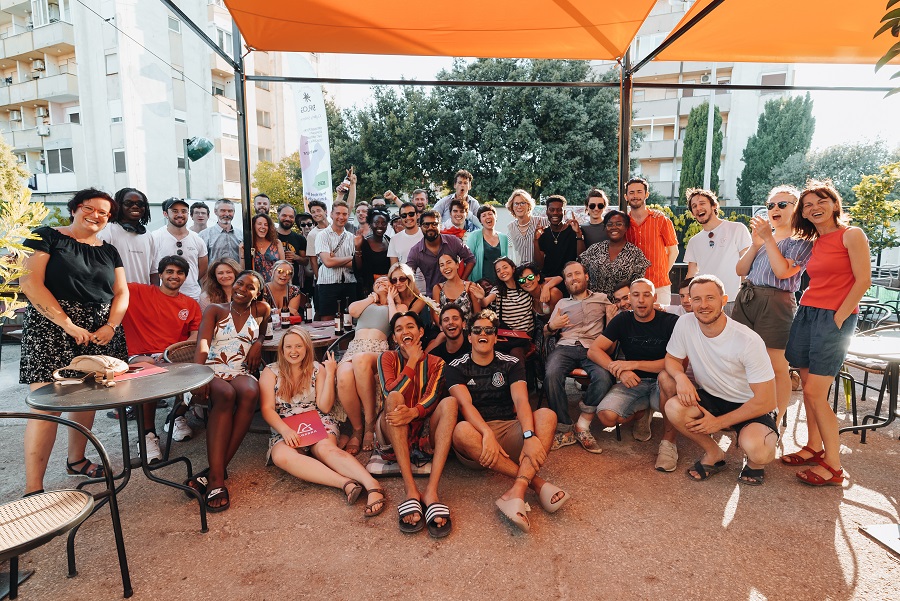
The final week we were back to where it all began – Zagreb! Summertime is the perfect season to explore the capital of Croatia, with rich history and cool summer festivals, so the students were happy to get another chance to explore it.
As part of the Croatian language and culture course, students created a video diary (travelogue) of their trip to Croatia; in groups of three to five, they recorded educational videos about Croatia and what they experienced and learned. The memories they carry with them, we are sure, will permanently enrich their private and future business lives.
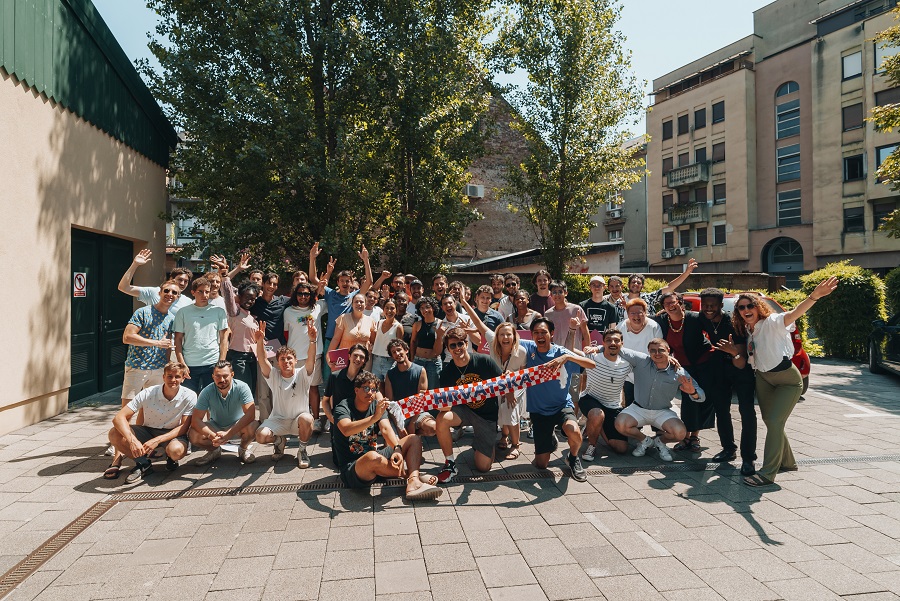
It has been an amazing journey of knowledge, technology, travel and friendship. We are proud of all our Summer Schoolers who passed their courses and received final certificates.
See you / Mach's gut / Vi ses / Бувай / Até mais / Görüşürüz / довидување / - Vidimo se!
****
You can learn more about the expanding syllabus of Algebra University College on the official website.
Interested in taking your higher education journey in Croatia? Check out the Total Croatia Study in Croatia guide.
Meet Foreign Students Choosing Croatian Education: Manda Ivkic from Austria
July 13, 2022 - Among the growing number of foreigners relocating to Croatia, international students are increasingly visible. So who are these foreign students choosing Croatia, and why? In the latest in a new series, we get the perspectives of life and study in Croatia through the eyes of its foreign students, continuing with Manda Ivkic from Austria.
Among the many foreign tongues heard around the Croatian capital these days is the growing number of students choosing to do their graduate programmes in Croatia. A safe, affordable EU country, with a rapidly expanding programme of high-quality graduate courses in English, with excellent employment opportunities upon graduation, are just some of the reasons for choosing Croatia. And the quality of that education was highlighted recently, as Algebra University College signed an academic partnership agreement with Goldsmiths, University of London (as reported previously on TCN), thereby allowing Algebra students to study under the approved programmes of one of the 500 best universities in the world according to the World University Ranking.
Despite the growing excellence of English-language graduate and post-graduate education in Croatia, the opportunities are not so well known, and so TCN - in partnership with Algebra University College - has compiled an authoritative guide to what you need to know about studying in this beautiful country. Check out the Total Croatia Study in Croatia guide.
Nothing paints the real picture of studying in a foreign country better than the real experiences of students living the day-to-day reality. In a new series on TCN, we meet some of the international students who have fallen in love with Croatia, many of whom plan to stay and work here if they can find employment. We look at the realities of life, why they chose Croatia, and what advice they have for others contemplating studying in Croatia.
Time to meet Manda Ivkic from Austria who is doing a graduate course in Specialist Graduate Professional Study Programme in Digital Marketing at Algebra University College.
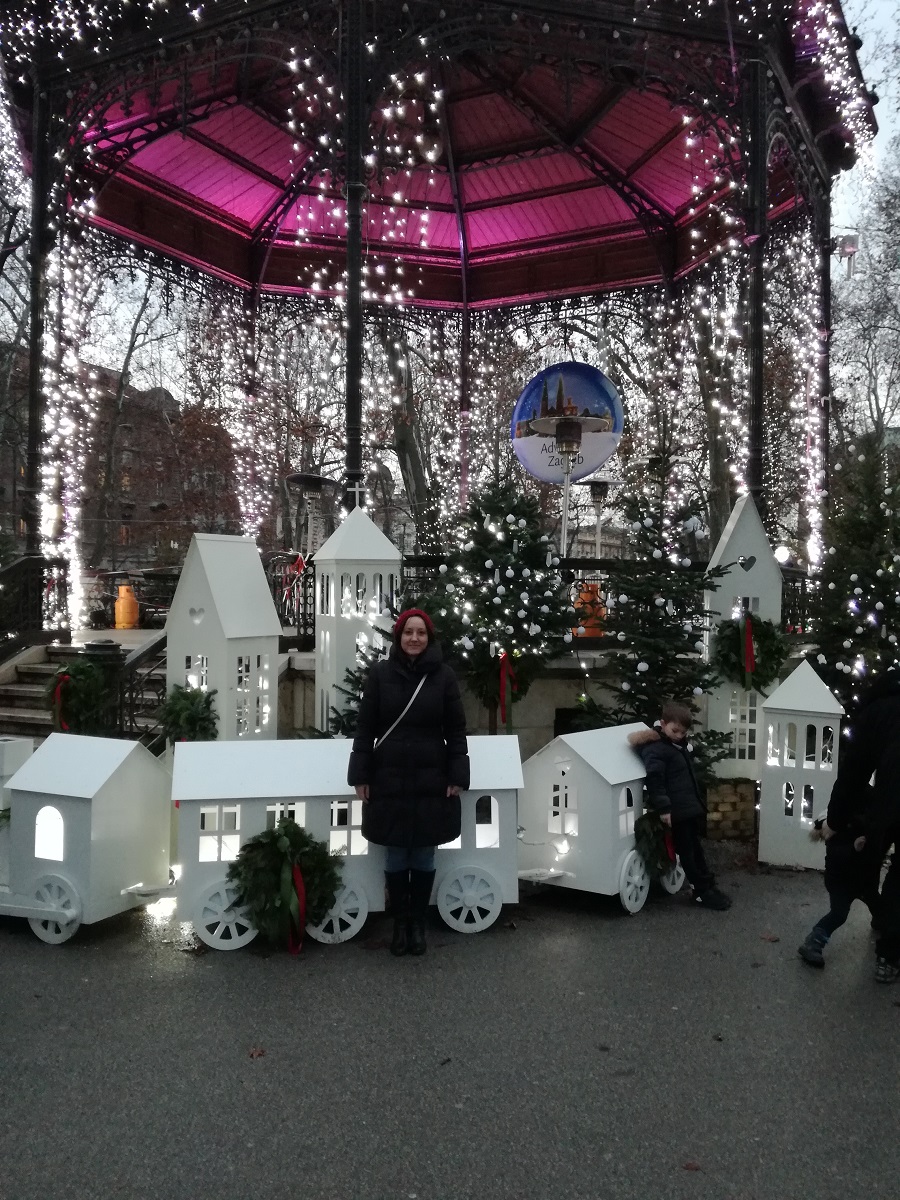
1. You chose to study in Croatia. Tell us what were the main factors in that decision.
I wanted to study Digital Marketing but I wanted to do it in English. I was not able to find a Digital Marketing study program at graduate level in Austria that was 100 % in English. So, I researched other countries’ offerings and found a study program on a student portal offered by Algebra University College. At first, I thought it was a Swiss college but then I realized it is Croatian. I found some articles in Austrian newspapers about the good quality of education in Algebra and the possibility to easily find a job after graduation or even while studying. That was the main driver for my decision. As I always wanted to spend one summer in Croatia, I found it was a great opportunity to also explore Croatia and extend my network.
2. How is the experience so far? Give us some pros and cons.
Every beginning is a bit tough when you move to another country. I think the situation with the pandemic made it more difficult than it would normally be. However, I found it very easy to integrate into university. Croatian students are very open-minded, friendly and willing to help. They helped me a lot to integrate easily in a very short period of time. There is also a WhatsApp group for international students and some local Buddies support these students. That helps us from abroad to get all questions answered by locals and also to meet new people from all over the world. So far, I enjoyed exploring Zagreb and Croatia, its culture and the lifestyle. The traffic in Zagreb is very busy compared to what I was used to and there are quite a few traffic jams. Also, some Croatian drivers are impatient and I had to learn to deal with it... There are also other aspects that are different too, but that is what you should expect when you go abroad – you want to see and experience something different – that is the reason why one travels abroad.
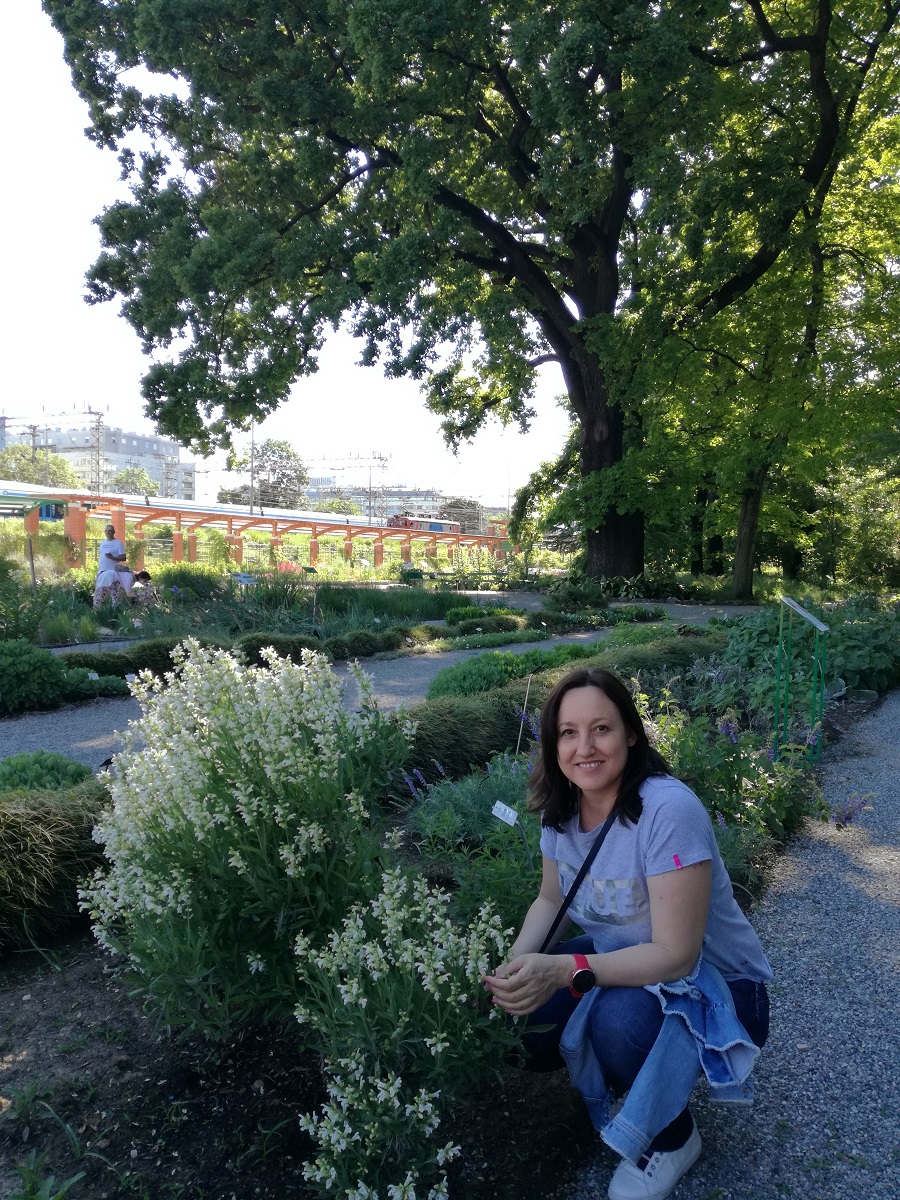
3. How was your perception of studying in Croatia different from the reality? Give us some things that have surprised you about the experience?
I was surprised about the amount of work students have to do on their own besides the labs, such as homework, projects etc. I don’t know if this is with all study programs but I needed some time to get used to that. However, there is something positive about that. Having to work continuously on these tasks helps students to get prepared for the exams. On the other hand, I was very positively surprised about the communication among students and between professors and students, which is open, democratic and supports dialogue and discussion. There is a huge sense of support and team spirit. I like that very much and I feel like being integrated very well and accepted by all students, local and international.
4. How easy was it to do the paperwork to enroll in the study programme? Any suggestions to improve things?
I found it very easy to do the application because everything was clearly stated and the international office was very customer-oriented. One improvement I would suggest is that the students should receive the information about the schedule for courses they take for which they should be present at college when applying. This would be helpful when thinking about job application in advance but also about the accommodation (commuting time, distance between job and college, location of accommodation etc.).
5. Tell us a little about the accommodation and the cost of living.
There are different possibilities from the student dormitory to private accommodation. Zagreb offers accommodation for every budget and you can have low, moderate or high cost accommodation as a student. If you wish to have an apartment with a great location, you will need approx. 500 EUR a month. I know that many students coming with friends share the apartments which makes sense for mates and lower the cost. In Croatia there are some great offers for students like student canteens, student transport passes with reduced prices. Almost every attraction, theater or museum offers student discounts. In my opinion, Croatia is more student-friendly than many other countries. I can recommend everyone to go on the Erasmus program and spend at least one semester abroad.
6. Finding work is a key priority for students, both to help finance the study, but also upon graduation. How hard have you found it to find work, and what are the main obstacles?
Job offers in Zagreb are good, you can find a job very easily as a student. Most of the students work while studying and there is a student center that helps with contracts, payments etc. You just need to register there as a student which required little paperwork. As there are also many companies from EU or overseas, you can even find a job offered by Austrian, German or American companies. I had a full-time job-offer with a German institute and one of my international colleagues found a job at a German company that has an office in Zagreb. There are large numbers of jobs offered for customer care specialists in different languages. Some jobs are even remote which is very convenient.
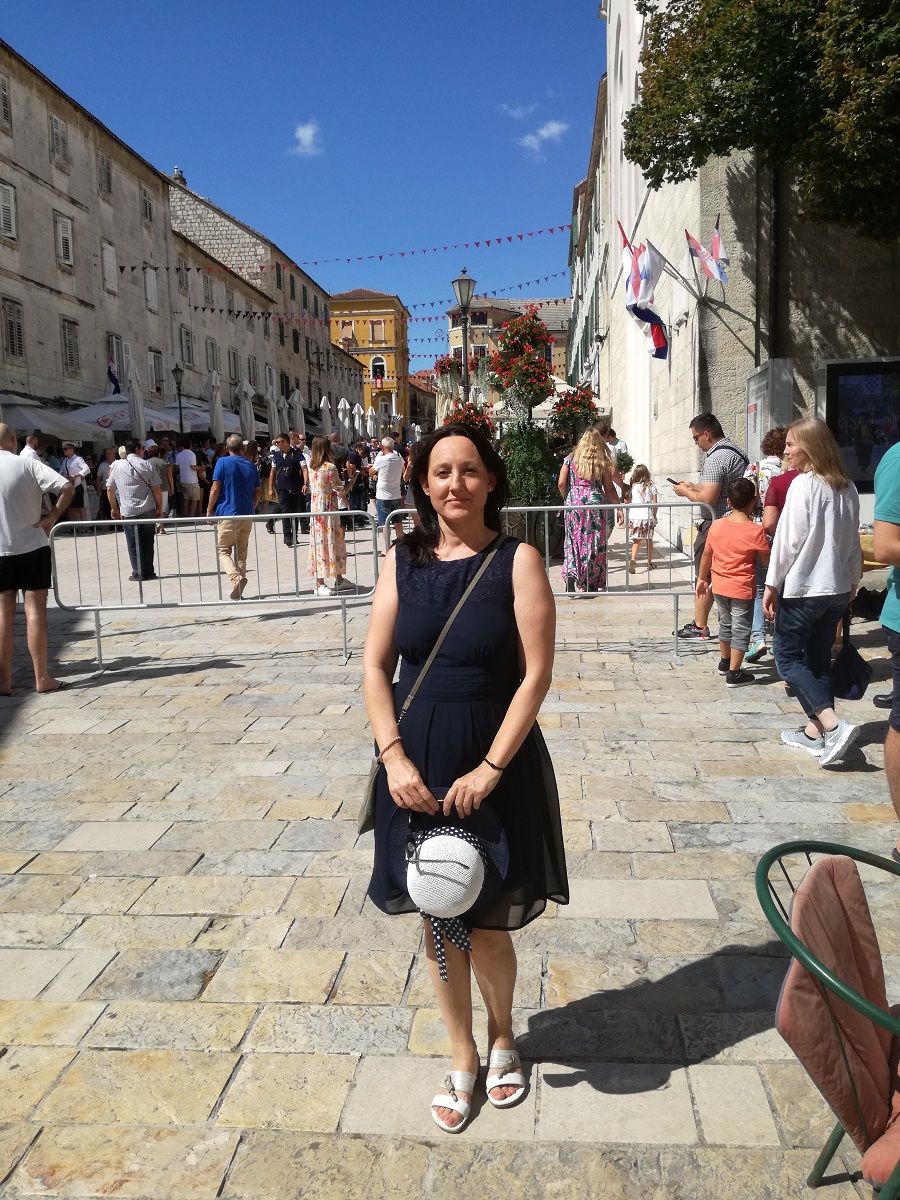
7. Tell us about the Croatian lifestyle and making friends. How has it been for you?
The Croatian lifestyle is different then what I am used to (Austrian or German). People love to spend time with friends or colleagues at bars, cafés and restaurants. They seem not to be as stressed as Western Europeans and they have a better work-life balance. It is easy to meet people and make friends in Croatia due to its welcoming culture. As an international student, you are more likely to meet students – local and from all over the world - and there are lot of things you can do together. The weather is mainly good in Croatia so it is easy to enjoy the outside activities and visit attractions, coast side or national parks and nightlife, too.
8. Do you plan to (try and) stay in Croatia when your studies finish? Why/not?
I could imagine staying in Croatia after studying for some time or for longer. It will very much depend on the situation at the time when I graduate. The main factor will be the job offerings here or abroad. Croatia offers good possibilities in the IT and digital sector but I think it is too early to think seriously about it actually due to the uncertain post covid and war situation in Europe that will affect the economies and businesses. We will see what the future is holding for us.
9. Three things you have enjoyed most about your experience studying in Croatia?
Meeting new people and making friends from Croatia, getting to know the real Croatian culture and the ability to easily travel to the seaside are three things I most enjoyed about my experience studying in Croatia. The Croatian coast is so beautiful and you can reach it in approx. 2 hours drive from Zagreb.
10. What advice do you have for people who are considering studying in Croatia?
The Mediterranean climate and the food, all the places one can visit, festivals and events one can join make Croatia a great place for studying abroad. There are many national parks around and even a ski area, Sljeme, in Zagreb. The college organizes hiking tours, sports for free and you can also join some sports competitions. Everyone can find an activity that he/ she loves. If you have ever thought about going to Croatia and if you can manage it, just do it! It is worth exploring. Although you might also experience some negative aspects or have few bad days while abroad, missing your loved once or your friends, you will most likely enjoy it much more. You will very soon learn to love the Croatian lifestyle, friendliness and welcomeness. I am very happy that I made the decision to study in Croatia. I don’t want to miss the experience!
Are you an international student on a graduate or post-graduate course in Croatia, who would like to be featured in this series? Contact us on This email address is being protected from spambots. You need JavaScript enabled to view it. Subject Study.
To learn more about the options for studying in Croatia, check out the Total Croatia Study in Croatia guide.
For more information on courses offered by Algebra University College, visit the official website.
Algebra University College: Interest in Our Studies is 40% Higher than Last Year
July 12, 2022 - Of all private higher education institutions in Croatia, the largest number of high school graduates this year chose Algebra University College as their first choice when applying for study programs. Here's why.
Algebra continues to raise higher education standards, which, according to data published on the Postani student portal, resulted in an increase in applications for study programs by 40 percent compared to last year, or by 27 percent when it comes to the first three choices. According to the current number of applications, Algebra records the most significant growth in interest in design study, for which even twice as many high school graduates applied as last year. In addition, interest in the study of digital marketing increased by 40 percent, while the study of computing recorded 35 percent more applications.
This is the result of continuous investments in the topicality and quality of teaching programs and academic collaborations, such as with one of the oldest components of the University of London - Goldsmiths, which allows students to receive Croatian and British diplomas without leaving Zagreb. As many as 160 prospective students have applied for these studies, evaluated by one of the world's 500 best universities, beginning next academic year at Algebra. For 70 of them, this is their first choice of study. In addition, through cooperation with the University of London, Algebra graduates can choose between undergraduate studies in design, computing, and digital marketing this school year.
"The great interest in Algebra in collaboration with Goldsmiths University is fantastic news. In the year when we celebrate the 30th anniversary of diplomatic relations between Britain and Croatia and our 30-year partnership in all fields - from defense and security to business and culture - the cooperation between Algebra and Goldsmiths in education is further proof that we are strengthening our ties. I wish all participants the best of luck in obtaining a degree from one of the most prestigious British universities," said Simon Thomas, the British ambassador to Croatia.
"British universities are rightly recognized as the most prestigious in the world, and the fact that they make international connections is key to that success," said Nigel Bellingham, director of the British Council, not hiding his enthusiasm for such a great interest in the new partnership between Algebra and Goldsmiths.
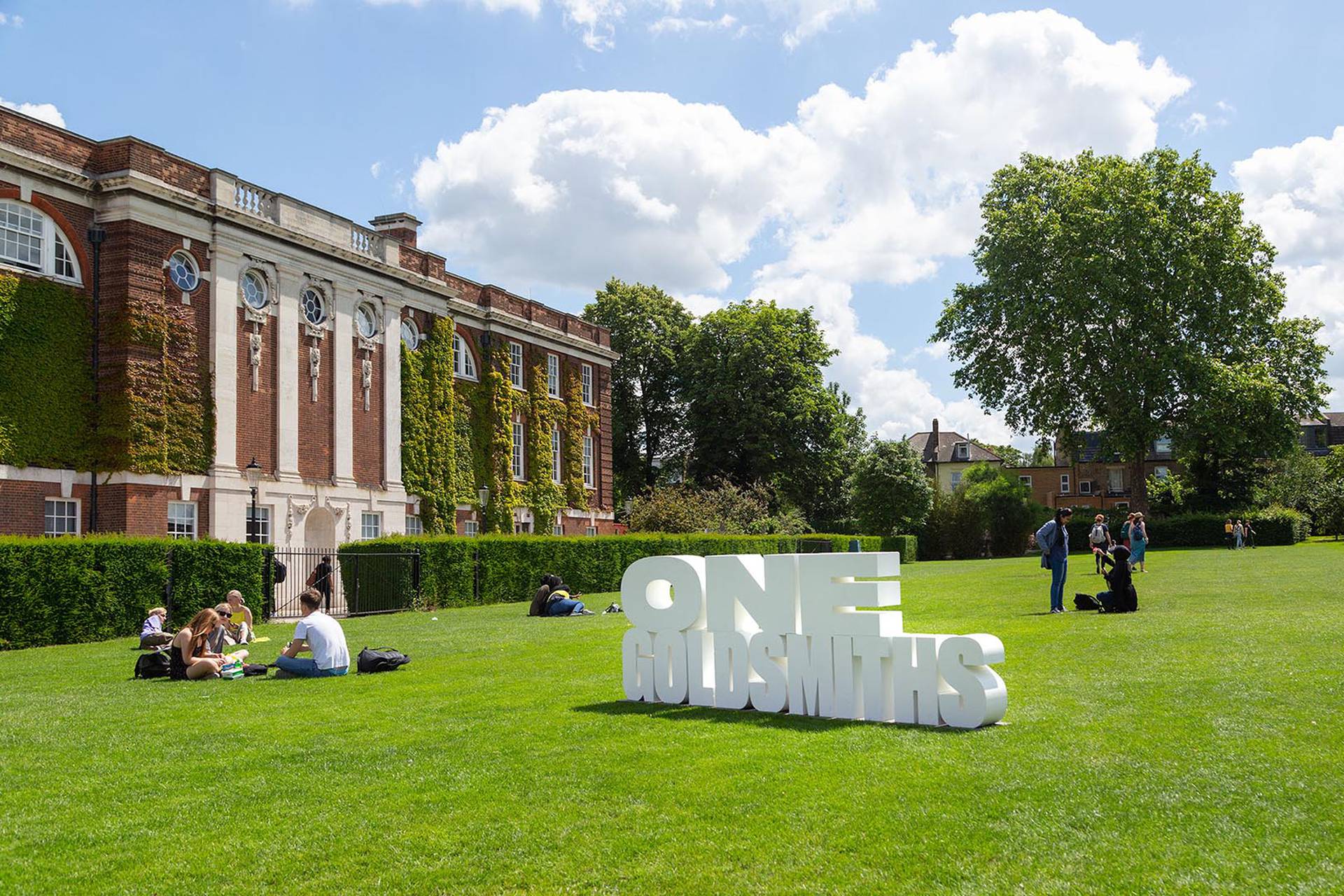
"This cooperation represents a model for other partnerships between Croatian and British universities. The British Council is proud of its partnership with Algebra, and we will continue to work with our friends in Croatia to contribute to the success of this program," concluded Bellingham.
A particular interest is visible among young people who have already completed three-year professional studies since they have the opportunity to enroll in one of the graduate studies in Algebra, and in addition to Croatian, obtain a British or French master's degree after two years of study this year. Graduate studies in data science, computer game development, computer science, and digital marketing can be completed this year with diplomas from the University of London and Algebra, and they also have the joint study "Internet of Things and Artificial Intelligence," which Algebra and French EPITECH accredited last year. This study is also conducted in English, with one year being attended in Zagreb and the second in Paris. EPITECH or L'école de l'expertise informatique et de l'innovation is one of France's largest technological educational institutions, with more than 6,000 students and multiple campuses in several European locations.
Despite the decline in the number of Croatian high school graduates, Algebra records an ever greater interest in its study programs, which is the best indicator that the innovative approach and insistence on the quality of the content and the quality of the teaching implementation make sense.
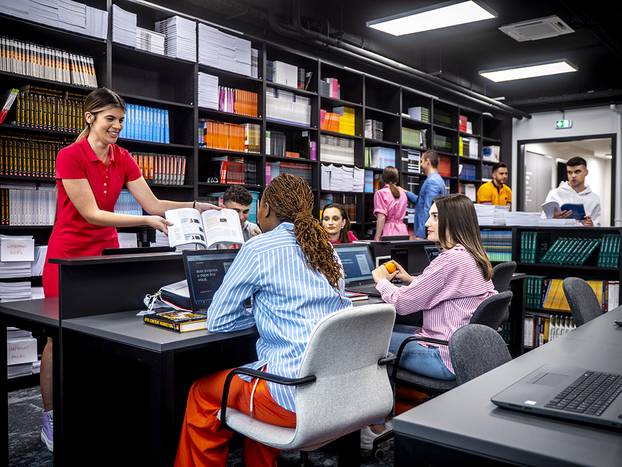
"We are very focused on the global occupations of the future, and in regular communication with leading Croatian and international employers, we adapt our programs while encouraging the arrival of foreign students. Furthermore, we place great emphasis on practical learning, which we enable students to do through cooperation with renowned domestic and foreign companies, so the knowledge acquired by our students is immediately applicable in everyday work. This is one of the key reasons global and domestic employers highly value our graduates, as evidenced by the fact that within three months of completing their studies, almost all of them are employed in the profession. This is an important motivator for the growth of applications that we are witnessing, even though the number of graduates who want to continue their education this year is ten percent lower than last year," pointed out Mislav Balković, dean of Algebra.
For the last five years, all Algebra graduate studies have been conducted exclusively in English, and from this academic year, this is also possible in almost all undergraduate studies. In addition to opening a new perspective for employment and career advancement, this approach enables an educational experience in a multicultural and multinational environment.
The experience of studying at Algebra took on a new dimension this spring with the opening of the new Zagreb campus, making Zagreb a multidisciplinary center of excellence and an incubator of globally competitive human potential, which will increasingly attract domestic and international students and participants of various educational programs in the coming years. Students have at their disposal 35 modernly equipped lecture halls and laboratories, 14 online cabinets, a video, audio, and podcast studio, a drawing room, a 3D print room, an innovation lab, a large server room, a library, and a room for project collaboration and numerous other specialized rooms.
For more, check out our lifestyle section.
Rise of Croatian Higher Education: Mislav Balkovic Interview, Dean of Algebra University College
June 5, 2022 - Croatia is becoming increasingly successful at attracting foreign students to its English-language higher education programmes, with the pioneering Algebra University College leading the way. TCN catches up with the Dean of Algebra, Mislav Balkovic.
One of the most interesting - and under-reported - positive trends in Croatia today has been the rise in numbers of foreign students choosing Croatia for their higher education, with many then choosing to stay in their newly adopted home upon graduation. With the media focusing on the emigration of Croatia's youth, this reverse brain drain, or brain gain, has been made possible by the availability of an expanded portfolio of high-quality graduate programmes on offer in the English language.
Without question, the leading academic pioneer in this field has been Algebra University College, which continues to raise the bar, as well as internationalise the quality of its higher education. Its recent partnership with Goldsmiths, University of London, is an excellent example of this. Having recently moved to a huge new campus, and with the highest percentage increase of students to its bachelor programmes last year, these are exciting times for Croatian higher education, and Algebra University College in particular. TCN caught up with the Dean of Algebra, Mislav Balkovic, to learn more about that, as well as what is coming next.
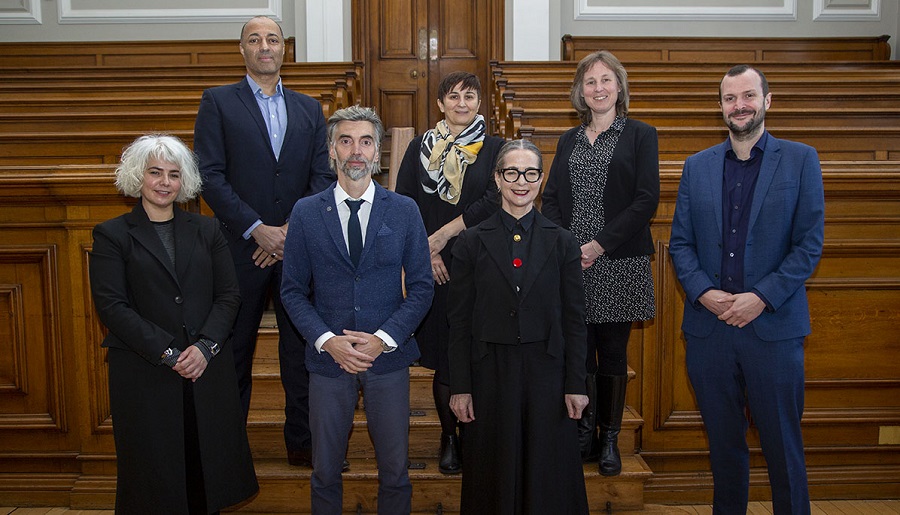
1. Croatia is perhaps not the first country that springs to mind in Europe when foreign students consider their higher education, but an increasing number are choosing Croatia for their graduate studies. What are the main competitive advantages that Croatia offers?
Competition in higher education in Europe and across the world is already high and only intensifying. In such circumstances, some countries and their institutions have been more successful than others. Croatia has a long tradition in quality higher education, and significant new investments in infrastructure and quality of our universities in recent years have strengthened this position. Apart from the universities per se, the quality of life, high level of security and touristic attractiveness of the country are additional factors in this equation. Finally, our 2013 EU accession and the Schengen agreement expected in months to come are also important. To conclude, from being the fastest growing touristic destination in Europe, Croatia is stepping up to become a fast-growing higher education destination. More than 80 study programmes delivered fully in English allow students to choose the best option in Croatia as their live and learn destination.
2. Algebra University College has been at the forefront of the higher education story in Croatia, and earlier this year, you signed an academic partnership agreement with Goldsmiths University of London. Tell us a little bit more about that, and how it came about.
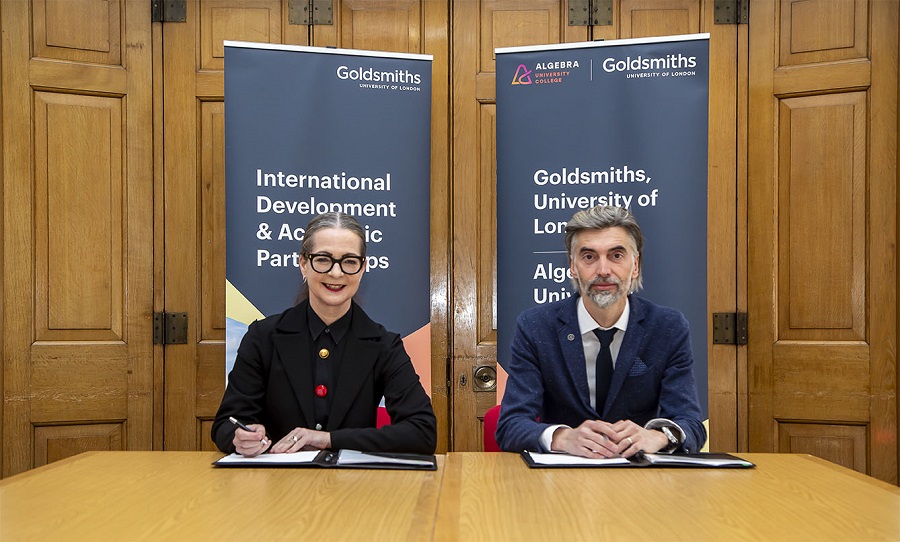
In order to be as attractive as possible not only to local students but also to talents from abroad, some 6 years ago we started to deliver our masters-level programmes exclusively in English. This required years of preparation, acquisition of teaching materials and books in English and further development of IT support systems for students. This increased our attractiveness and facilitated the recognition from Goldsmiths, University of London. For the past two and a half years we have been working together with our partners from London in order to get our programs recognized and validated in order for our students to be able to earn both degrees (Algebra’s degree and one from Goldsmiths, University of London) while studying at Algebra in Zagreb. This also counts as a recognition of the quality of Croatian national higher education by one of the top 500 universities in the world. Through the process, we managed to further develop our approach and incorporate some of the best practices from the British higher education system. In a nutshell, students who wish to obtain Algebra’s degree as well as a UK degree, could now achieve this in Zagreb, with an affordable financial investment. As a result, we started to also deliver our bachelor-level programmes in English so now international students can choose from a wide list of undergraduate and graduate study programmes / specializations. Our partnership with Goldsmiths, University of London is the only arrangement of this sort in Croatia. One of the reasons for how it came to be is most certainly the high marks in quality assessment that Algebra has been achieving for the past decade. The University of London wanted to have a high-quality partner institution, and they found it at our address.
3. You recently moved into a brand new campus as part of your continued expansion. Tell us a little about the facilities you now offer.
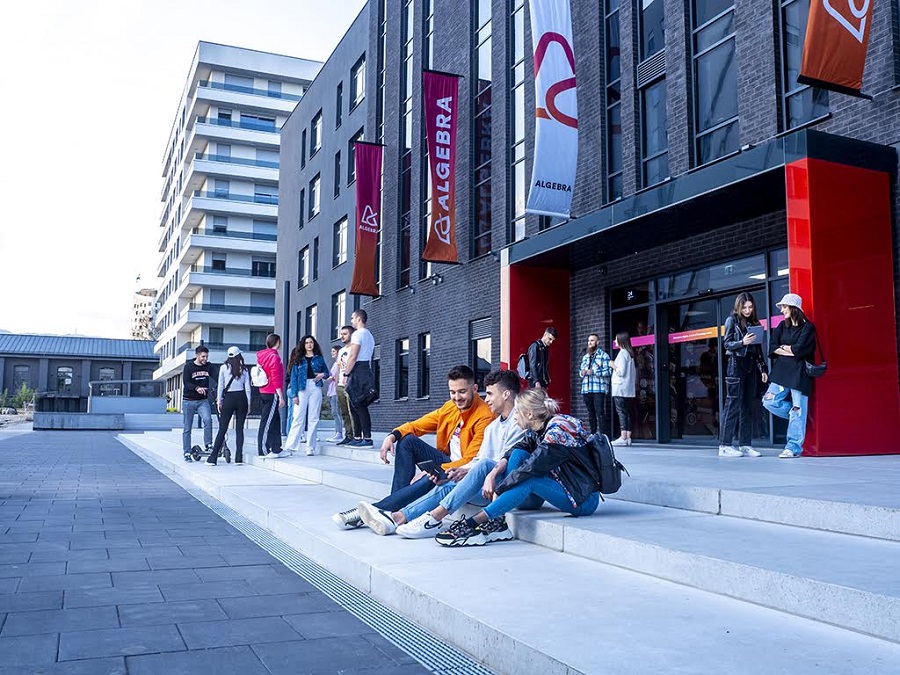
Our new campus was a 14.6 million EUR investment, by far the biggest such investment in private education in Croatia. Spreading over 12,000 sqm, the new campus has given us the opportunity to situate more than 35 fully equipped IT classrooms and lecture venues as well as the necessary infrastructure with the accompanying equipment. Apart from our new “Nimbus” data centre which boasts 80 physical servers and a supercomputer, students have at their disposal services and usage of our Innovation Lab, 3D Production Lab, fully equipped Audio & Video Studio, and a Production Room, library, exhibition halls and other facilities needed to ensure high-quality education. Students also have at their disposal 700 PCs, 40 3D printers of different types and sizes as well as networking labs and equipment providing them with a state-of-the-art learning experience in our digitally focused programmes in the areas of computer science, economy and arts. The new campus and its accompanying infrastructure are unmatched not only by Croatian higher education institutions but also by many other institutions globally.
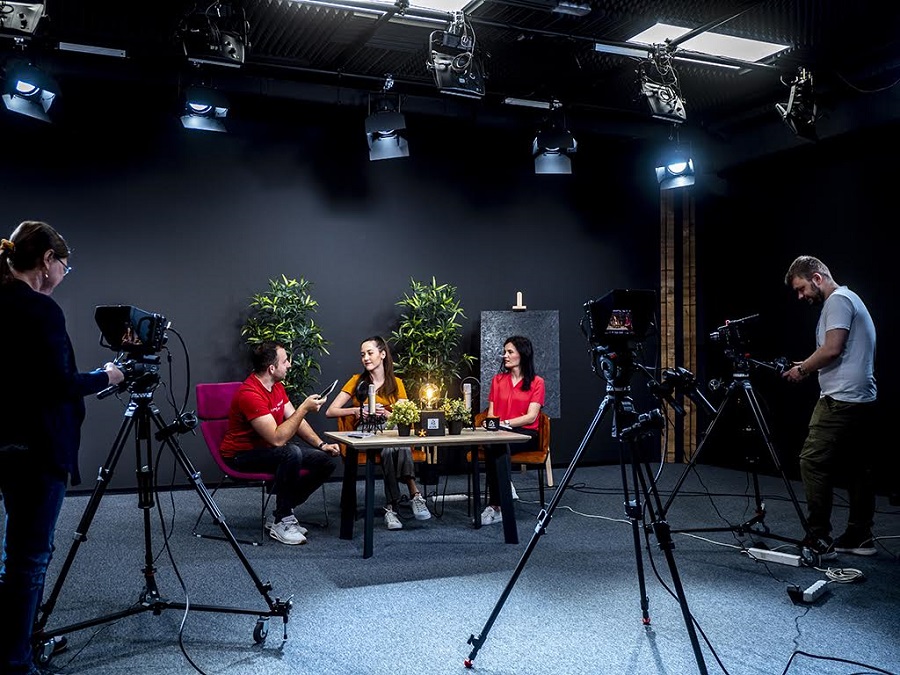
4. Graduate employment is an important consideration for many when choosing a course and location. Several students we have spoken to have spoken of their love of Croatia and hopes of finding work here upon graduation. Can you give us an overall picture of how the graduate labour market looks for Algebra students, and what help can you give those students in finding quality positions?
The Croatian labour market is highly vibrant, especially in digital careers. Our IT and digital industries have a double-digit growth each year and attract and employ more graduates than our higher education institutions are capable of producing. This means that there is a surplus of good and well-paid jobs for anyone with our degree or degree from other high-quality higher education institutions. An additional benefit of our degree is that it is easily recognized in all EU Member States as a result of 2013 referencing of our national qualifications framework and European Qualifications Framework. As a result, most of our bachelor-level students already work part-time, and more than 96% of graduates are employed in the industry some three months after graduation. The true testaments to this fast-growing market are the huge investments that have created two unicorns in Croatia, Rimac and Infobip. These and other companies now employ many international experts and have English as their main corporate language.
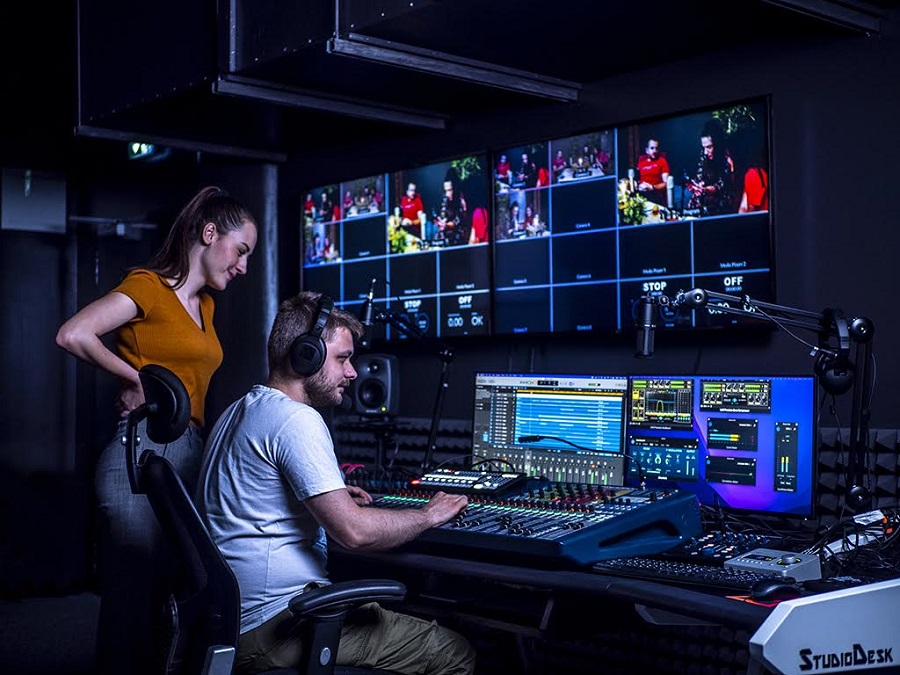
5. While most students are extremely happy with the efficiency of the paperwork from Algebra itself, Croatian bureaucracy is often cited by students as an issue. What practical steps can be taken to smoothen the bureaucratic process for foreign students?
The growth of the industry and the urgent need to attract talents to Croatia has changed this significantly, and there is now a continuous need for smooth and fast procedures. This is why our Visa centres in India and parts of the world now have strengthened processing capacity. Also, the Croatian Ministry of Interior now has people who are in close contact with international offices of universities. Depending on the country of students’ origin, with many there is already a signed agreement on the recognition of health insurance for students so they could work in Croatia as students more easily. Not all things are perfect, but universities are working together with employers to make the lives of international students easier. Also, the level of spoken English in Croatia is high so students coming from any part of the world should not experience any problems.
Still, to be sure all the procedures will be finished timely, international students coming outside the European Economic Area (meaning EU + few other countries), should start their admission process as early as possible.
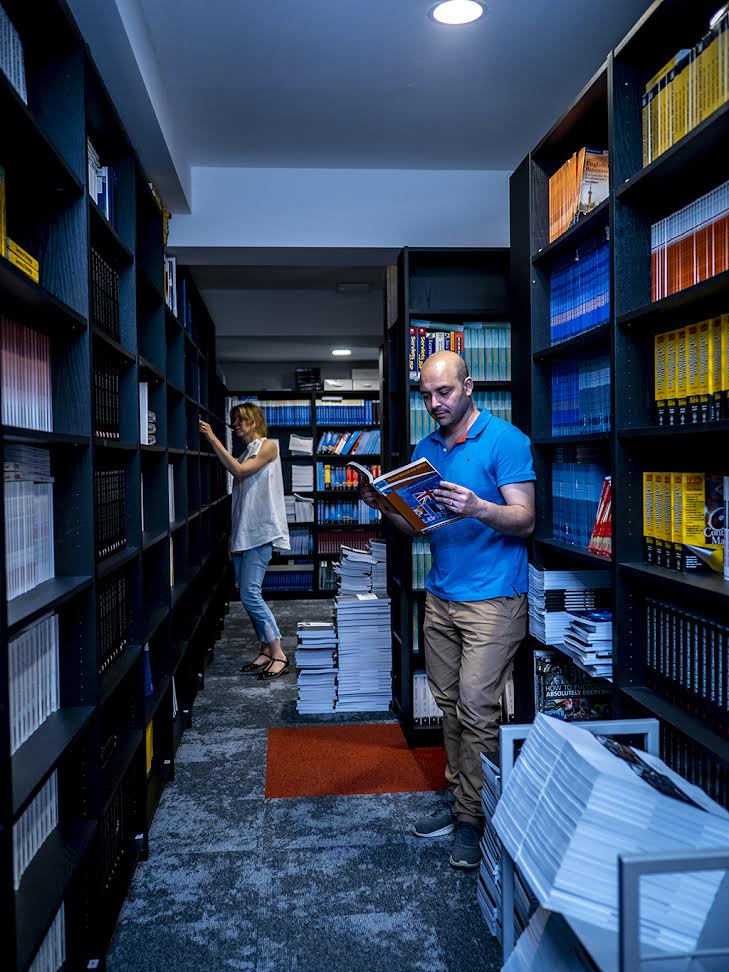
6. How can government best play a part in supporting the expansion of private higher education? What are the current friction points that need to be resolved?
In Croatia, students who study at private institutions pay commercial tuition fees, while those in public Universities pay almost nothing. This does not apply to international students because they pay commercial tuition fees whether they’re studying at a public or private university.
In order for private institutions to be more competitive and in order for students to receive the same treatment, subsidies that are linked to students should be applied, regardless of the ownership of the institution. Also, private institutions are not eligible for EU funds for the development of infrastructure, while state-owned ones are. Less important frictions and differences in approach are either already resolved or will be resolved by the beginning of the next academic year due to upcoming changes in legislation.
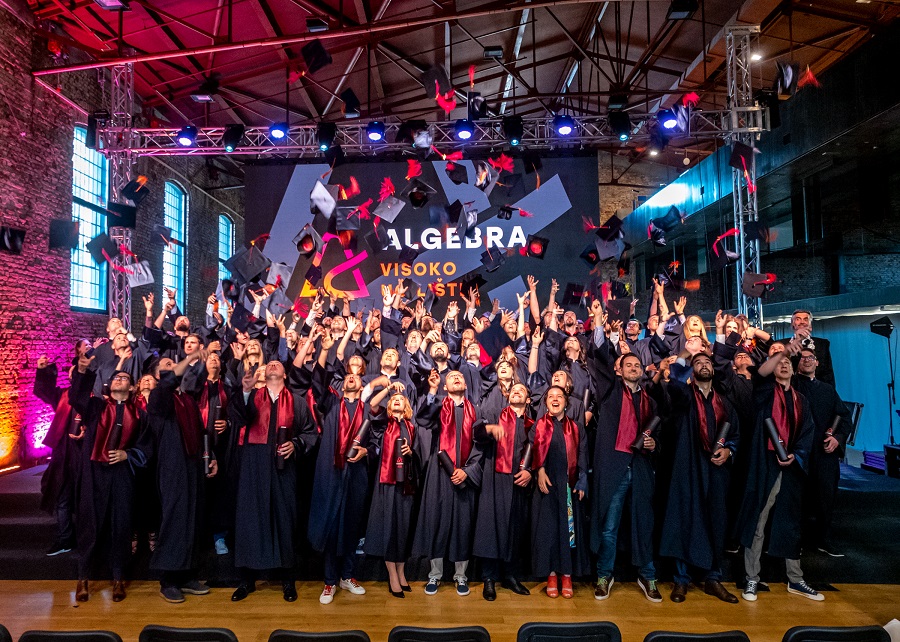
7. How do you see the English-language higher education sector looking in 5-10 years from now.
In my opinion, this is the only sector in Croatian higher education which has the potential to grow. The reason for such an assertion is the fact that Croatia is slowly losing its population (same as many EU countries) due to an ageing population, negative birth rates etc. Currently, this loss is happening at a rate of some 4% per year. We are the only institution in the country which still has an increase in the number of freshmen students at bachelor level of more than 10% each year (this year we have 25% more applications compared to last year). Still, I do not see a way for us to continue to grow indefinitely while numbers of domestic students are decreasing. Therefore, for us and other universities, I think English programmes could be the key to future development. Of course, just delivering teaching in English will be far from enough. Each institution would have to provide high-quality programs, infrastructure, teachers and projects for students and thus compete in the international higher education arena. Some institutions will be successful in this transition to international markets, while I expect most will not.
8. And finally, in a sentence or two, tell us why foreign students should be choosing Croatia for their graduate programme.
Croatia is indeed a live and learn destination – our country has tremendous natural beauties, a hard-to-match cultural heritage, affordable prices and quality higher education delivered in English. We are an EU Member State with a highly competitive, developed and fast-growing digital industry. Croatia awaits and welcomes talented young people to get their degree and to build their careers here.
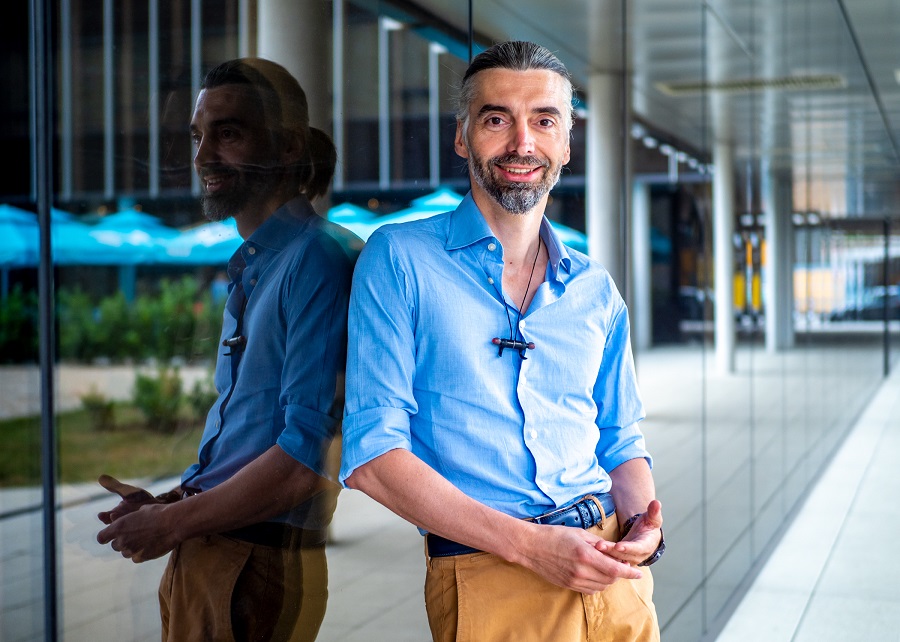
Mislav Balkovic (PhD, Assistant Professor) dean of Algebra University College is an active researcher in the area of National Qualifications Framework and Knowledge management where he participated in a number of national projects including the development of legislation for CROQF and implementation of various policy and regulatory documents in higher, VET and adult education. He is currently working on research in the area of Validation of non-formal and informal learning and the development of modern educational approaches (methodics and didactics). He was representative of Croatian employers (2010 – 2012) in the Advisory Committee for Vocational Education and Training, DG Education and Culture, EU Commission, Bruxelles. Since 2006 he has been intensively involved in the preparation of different types of development projects in the area of education. To this end, he has prepared more than 50 international and national project applications and managed some 30 different projects. Mislav currently acts as the president of the Sector skills council for Electrotechnical and Computing and is President of the Croatian Employers Association - Association of Employers in Education, during (2010 - 2016) period he was an active member of the National Council for Science and Higher education and member of the Government committee for the implementation of education, science and technology Strategy.
You can learn more about the expanding syllabus of Algebra University College on the official website.
You can connect with Mislav Balkovic via LinkedIn.
Interested in taking your higher education journey in Croatia? Check out the Total Croatia Study in Croatia guide.
Meet Foreign Students Choosing Croatian Education: Nicholas Silva from Brazil
May 17, 2022 - Among the growing number of foreigners relocating to Croatia, international students are increasingly visible. So who are these foreign students choosing Croatia, and why? In the third of a new series, we get the perspectives of life and study in Croatia through the eyes of its foreign students, continuing with Nicholas Silva from Brazil.
Among the many foreign tongues heard around the Croatian capital these days is the growing number of students choosing to do their graduate programmes in Croatia. A safe, affordable EU country, with a rapidly expanding programme of high-quality graduate courses in English, with excellent employment opportunities upon graduation, are just some of the reasons for choosing Croatia. And the quality of that education was highlighted recently, as Algebra University College signed an academic partnership agreement with Goldsmiths, University of London (as reported previously on TCN), thereby allowing Algebra students to study under the approved programmes of one of the 500 best universities in the world according to the World University Ranking.
Despite the growing excellence of English-language graduate and post-graduate education in Croatia, the opportunities are not so well known, and so TCN - in partnership with Algebra University College - has compiled an authoritative guide to what you need to know about studying in this beautiful country. Check out the Total Croatia Study in Croatia guide.
Nothing paints the real picture of studying in a foreign country better than the real experiences of students living the day to day reality. In a new series on TCN, we meet some of the international students who have fallen in love with Croatia, many of whom plan to stay and work here if they can find employment. We look at the realities of life, why they chose Croatia, and what advice they have for others contemplating studying in Croatia.
Time to meet Nicholas Silva from Brazil who is doing a graduate course in Applied Computer Engineering, Game Development at Algebra University College.
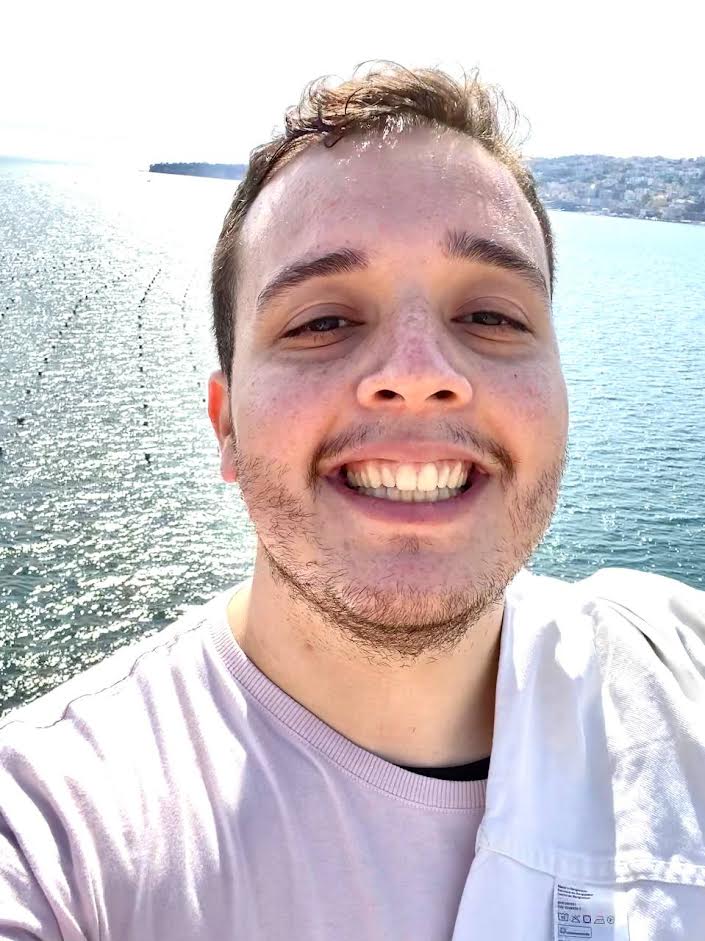
1. You chose to study in Croatia. Tell us what were the main factors in that decision.
To be honest, Croatia was never my first option, not because I didn't think the country was good enough, but because when we think about exchange programs we always think about the big countries like USA, France, UK etc.
But I've always had an adventurous spirit and I really wanted to go to a place that not everyone knew, I was researching more about the countries in Europe and I came across Croatia in one of my searches, I had already heard about the country when it had the World Cup in Brazil in 2014 and the checkered shirts of the Croatian soccer team had caught my attention.
I started researching more about the country, the culture, the cities, the cost of living, and it ended up being very interesting to me. What was decisive for me were the safety of the country, the possibility to study and work, the chance to get to know the Adriatic coast and all the benefits of being in the European Union as well.
2. How is the experience so far? Give us some pros and cons.
My experience has been fantastic. I really like everything that happens here, the coziness of being a small country but at the same time seeking to internationalize itself.
The climate is very diverse and for me this is good, I have already had negative temperatures and now in spring we have had days of 30 degrees Celsius, not everyone likes it, but it is very good for me.
The possibility of being on the coast in less than 4 hours by car is very good, to be able to escape from routine on a weekend to take a dip in the sea and recharge the batteries.
The people are very receptive and curious about outsiders, I have made great friends here and feel at home already.
The cost of living, although it has increased a little recently, is still much better compared to other places in Europe.
The food is very good and there is so much gastronomic richness that every day you can eat something totally new if you want.
The negative points are that the bureaucracy is a little confusing when it comes to immigration documentation, there is a lot of disconnected information, but the Ministry of the Interior always answered my e-mails and the police responsible for my temporary residency process always clarified, but it causes a lot of insecurity for those who will apply for the first time.
The public transportation, despite reaching several points in the city (I talk about Zagreb here), could be improved.
The language for me is the main barrier, most people speak English, but obviously you are restricted to international environments if you do not make an effort to learn Croatian which is a very challenging language to learn. And also there are not many affordable language courses.
3. How was your perception of studying in Croatia different from the reality? Give us some things that have surprised you about the experience?
I am studying my Masters in Game Development at Algebra College University and have a very good experience studying.
But what struck me the most is that the teacher-student relationship is totally direct and close, the teachers are very easy to contact and are very accessible to help you with projects and questions.
The relationship with the other departments of the college is also very easy, it's like you know everyone and everyone knows who you are there, it seems that everyone is aligned to the same goals.
This may be just my personal experience at Algebra University, but I really like that I can send an email or go to the international secretary's office and know that I will be well taken care of.
The study relationship is very focused on the employability of their students, so their main metric is how many students are employed during and after their course, so it's almost guaranteed that you'll have a good job after graduating and the many possible student job opportunities in Croatia.
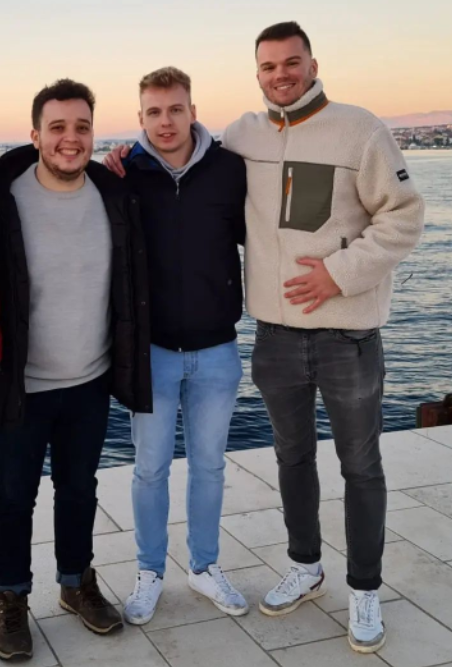
4. How easy was it to do the paperwork to enroll in the study programme? Any suggestions to improve things?
The application documentation for my master's degree was no different from other countries, the process was totally online, with interviews with professors over the internet and everything according to the institutional website schedule.
Algebra was always very willing to help me during the documentation for the application (and any other questions I had, which was a lot...) for the temporary residence, to get the OIB, and everything else that was necessary for my arrival and I have no complaints, it was all smooth.
The documentation for application for temporary residence depends a lot on which country you are coming from, if you need a visa before coming to the country, in short, my process took less than 3 months to get my temporary resident card but I know that there are people who had to return to the country for not being able to deliver all the requested documents.
5. Tell us a little about the accommodation and the cost of living.
Regarding accommodation, I was lucky because I found a flatshare on a Croatian equivalent of Craiglist, so before even arriving in Croatia, I already had my contract for a 12-month rental of a room in a shared house with other Croatians 25 minutes walking distance from my university campus.
The only bad part was that when I was in Brazil, every time I contacted the apartment advertisers they either distrusted me because I was from far away or they did not speak English.
I know of other international students who had problems with scammers but my experience in general wasn't bad.
6. Finding work is a key priority for students, both to help finance the study, but also upon graduation. How hard have you found it to find work, and what are the main obstacles?
I know that there are many jobs for students that are not filled because either there is no interest or because it requires knowledge of the Croatian language which is difficult among international students.
I got a very good job in 2 months in the business support area, I got it because I speak 4 languages fluently and that made it easier for me to find a job.
But it is a fact that if you don't know the language or don't have knowledge of demand it will be difficult to find something at first, but there are many international companies where the administrative language is English. But focus on your important skills for the job market and you will find something.
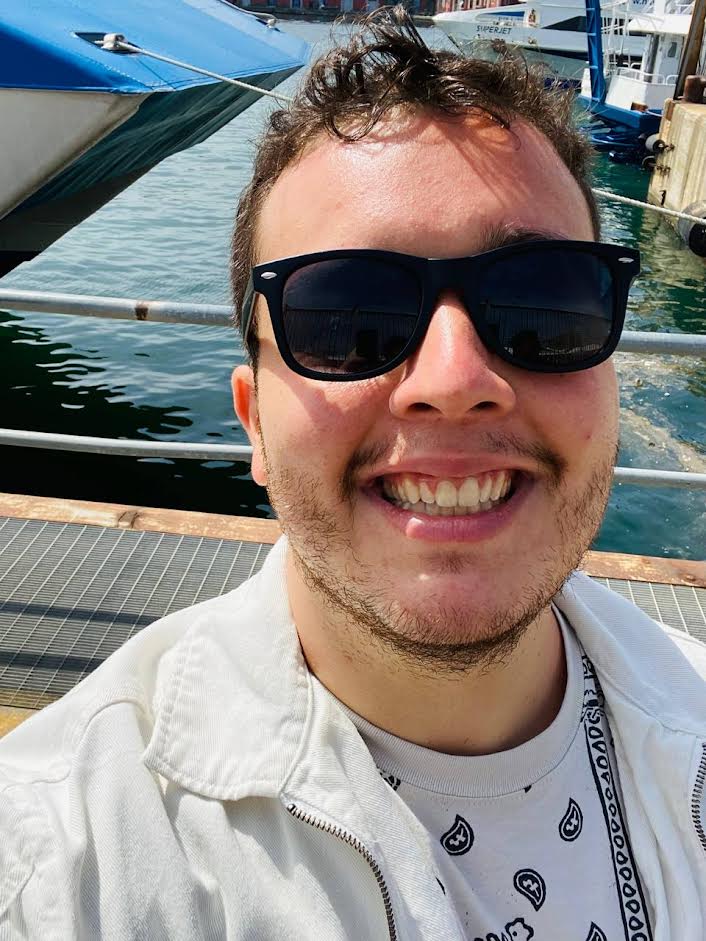
7. Tell us about the Croatian lifestyle and making friends. How has it been for you?
I can’t complain.
The Buddy Program from my university introduced me to the Erasmus students and also Croatian people willing to know more people, now I have really good Croatian friends.
And what beer and rakija bring together, stay together.
8. Do you plan to (try and) stay in Croatia when your studies finish? Why/not?
I do. I have a good life here and I believe if I can stay to pay back what I receive from this awesome country I would very much like to do it. But for now I will focus on my studies and work, after that, I will see what are my possibilities.
9. Three things you have enjoyed most about your experience studying in Croatia?
1 – People
2 – Trips
3 – Cultural exchanges
4 – Rakija
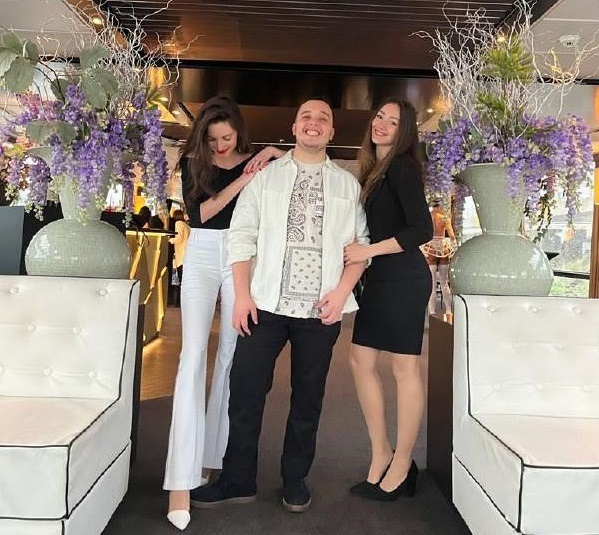
10. What advice do you have for people who are considering studying in Croatia?
Croatia is a great place to visit, to study, but studying abroad will always put your limits on the edge and will require dedication and patience to get what you want.
Are you an international student on a graduate or post-graduate course in Croatia, who would like to be featured in this series? Contact us on This email address is being protected from spambots. You need JavaScript enabled to view it. Subject Study.
To learn more about the options for studying in Croatia, check out the Total Croatia Study in Croatia guide.
For more information on courses offered by Algebra University College, visit the official website.
Meet Foreign Students Choosing Croatian Education: Elizabeth Borysiuk from Ukraine
April 24, 2022 - Among the growing number of foreigners relocating to Croatia, international students are increasingly visible. So who are these foreign students choosing Croatia, and why? In the third of a new series, we get the perspectives of life and study in Croatia through the eyes of its foreign students, continuing with Elizabeth Borysiuk from Ukraine.
Among the many foreign tongues heard around the Croatian capital these days is the growing number of students choosing to do their graduate programmes in Croatia. A safe, affordable EU country, with a rapidly expanding programme of high-quality graduate courses in English, with excellent employment opportunities upon graduation, are just some of the reasons for choosing Croatia. And the quality of that education was highlighted recently, as Algebra University College signed an academic partnership agreement with Goldsmiths, University of London (as reported previously on TCN), thereby allowing Algebra students to study under the approved programmes of one of the 500 best universities in the world according to the World University Ranking.
Despite the growing excellence of English-language graduate and post-graduate education in Croatia, the opportunities are not so well known, and so TCN - in partnership with Algebra University College - has compiled an authoritative guide to what you need to know about studying in this beautiful country. Check out the Total Croatia Study in Croatia guide.
Nothing paints the real picture of studying in a foreign country better than the real experiences of students living the day-to-day reality. In a new series on TCN, we meet some of the international students who have fallen in love with Croatia, many of whom plan to stay and work here if they can find employment. We look at the realities of life, why they chose Croatia, and what advice they have for others contemplating studying in Croatia.
Next up, Elizabeth Borysiuk from Ukraine, a graduate student in Creative Market Communications Management at Algebra University College.
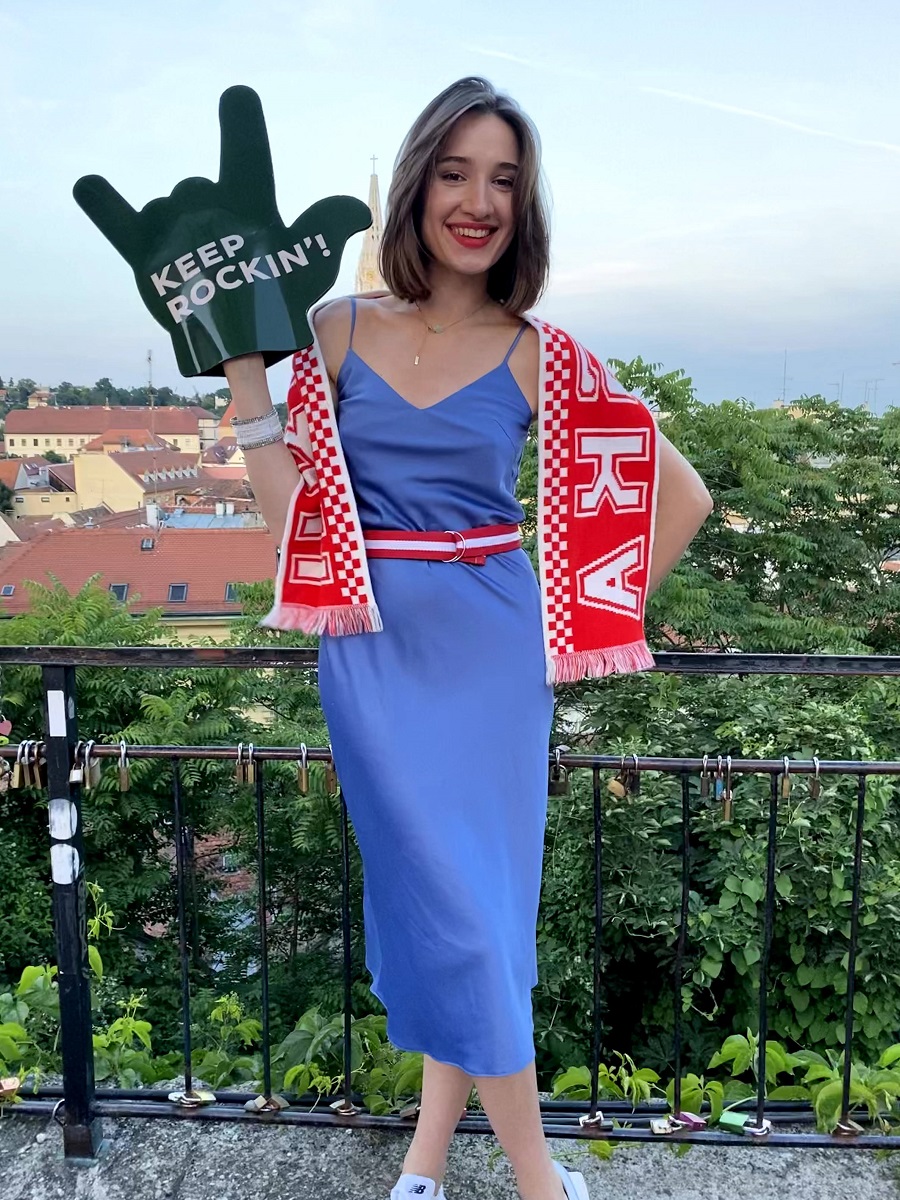
1. You chose to study in Croatia. Tell us what were the main factors in that decision.
When I was choosing a direction for my master’s degree the 2 winning points for Croatia were: location and international programs. This country is well-known among students in the western world and not only for great parties and beautiful views. I was impressed by the range of international connections and experiences that local universities are offering. It works both ways and the diversity is growing every new year. I thought it would be a great opportunity to study the same subjects from different perspectives, creating a diverse network while having a chance to discover the most beautiful country in the Balkan region.
2. How is the experience so far? Give us some pros and cons.
Right now being at the stage of graduation I must admit that the third winning point about studying in Croatia is the educational system and how strong it is. This is not a secret that many Croatian students are getting jobs in the most prestigious fields around Europe, and the key to success is laying in the school base. For incoming students it is both pros and cons because even these days we hardly can handle the Croatian style of both leisure time and study, so we are always struggling to choose the one (laughing). Being a student of design and communications management in Algebra University College, I am studying among colleagues who are leading complex projects in design agencies and our professors are CEO or creative directors with a full range of real-life award-winning cases. This is not what I expected coming here, but can’t be happier about such an open-minded approach.
From the biggest challenge these days I can highlight the application process for a residence permit. Even though it is well-known that bureaucracy and governmental establishments are still meant to be improved, sometimes it can become very complicated due to miscommunications and waiting time, so students are getting into inconvenient situations. The most interesting is that there is no one specific reason, everyone has their trouble case.

3. How was your perception of studying in Croatia different from reality? Give us some things that have surprised you about the experience?
I had mixed feelings about Croatia both from a master student and traveller perspective. Knowing that the central attention is drawn to coastal tourism, as well as being educated about the history and the globalization influence on local youth, I expected to learn the basics, travel to see some islands and move forward to another country. But already after my first visit, I felt like this is my new home and I want to stay. Hardly anyone can resist seeing the most beautiful coast in Europe, but I was touched by local people and the culture itself. I got deeply connected with the values and the charm of the Croatian style of living. As in any other country, there are surely some flaws, but it has nothing to compare with seeing how people can cherish the most important things: life, nature, freedom.
4. How easy was it to do the paperwork to enrol in the study program? Any suggestions to improve things?
In my university, it was a very organized comfortable process. Coming through a strict selection, both professor and I understood the responsibility and the level of educational background required, but after we settled down all agreements at the interview, the collection of documents and help with legal papers work has been fully provided by the international office. However such documents as Recognition of foreign education qualifications in Croatia and the process of receiving it can be still confusing for the incoming students as well as the process of getting a transport card, that can be issued only if you pay a visit in private ( on those rare working days and hours) to the transport office where workers rarely speak English.
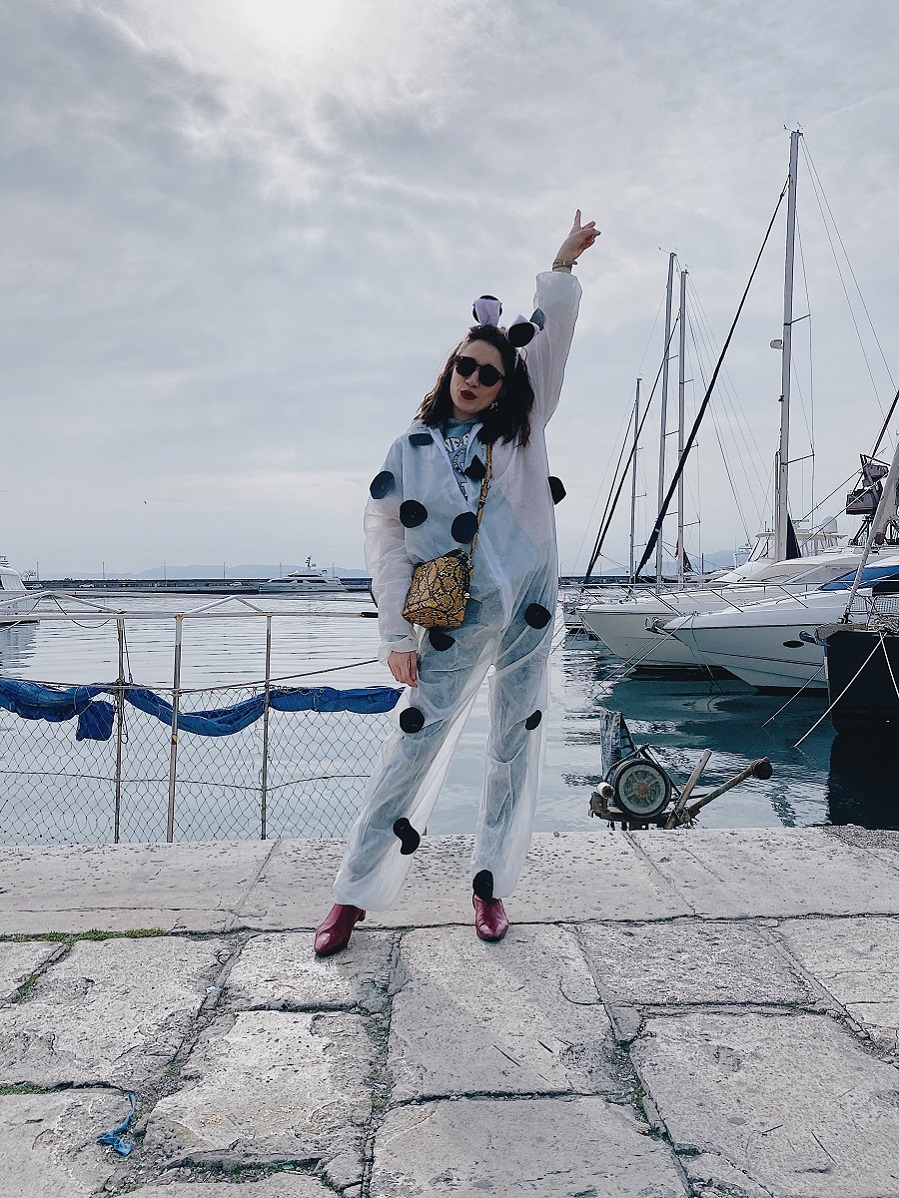
5. Tell us a little about the accommodation and the cost of living.
It is definitely not the cheapest country in Europe. Even though Croatia has its own currency, I must admit - prices are quite high compared with other south-eastern countries. The most expensive turns to be groceries and market food. Costs are like in Austria, however, the quality of products is much higher, I must admit. After that comes spending on car gas and service, but this is an essential in Croatia if you need to travel.
One point that I like: here rarely happens any problems to finding accommodation within your budget. Such cities like Zagreb, Rijeka and Split have all facilities for students, starting from dormitories to big apartments for 5-8 persons. In Zagreb people are quite open when it comes to offering accommodation to foreigners, most of the apartments in the central area are well-equipped and restored, and you can rarely find fraud cases. However, it is important to double-check the bills for maintenance and utilities and discuss with the owner the price, since it can definitely hit your budget, especially during wintertime. What is really useful is a big community in social media groups for students, that helps with the first steps of relocation.
6. Finding work is a key priority for students, both to help finance the study, but also upon graduation. How hard have you found it to find work, and what are the main obstacles?
This is a part of a conversation that is definitely waiting for improvements. For foreign students who don’t know the language - it is a double challenge. Firstly, because a foreigner can’t apply for a full-time job while studying when a Croatian student can. It is meant to be changed at the nearest time, but so far the only legal option is a part-time job or an internship. Secondly - the language itself. Most of the companies and agencies are working locally, meaning using the Croatian language within the process of work. It can be hard for a student to get adapted to such an environment, however, there is much more luck in the IT industry. Zagreb and Rijeka are hosting departments of big enterprises, who are looking for people with 2+ European languages, so it is a question of time and luck. In the case of the design and marketing field, most of the time they prefer to hire experienced Croatians, or those that have been referred by connections ( which is a common thing in Croatia). Though the most confusing point for me is how low the salary rate, and how some fields are being highly underpaid.
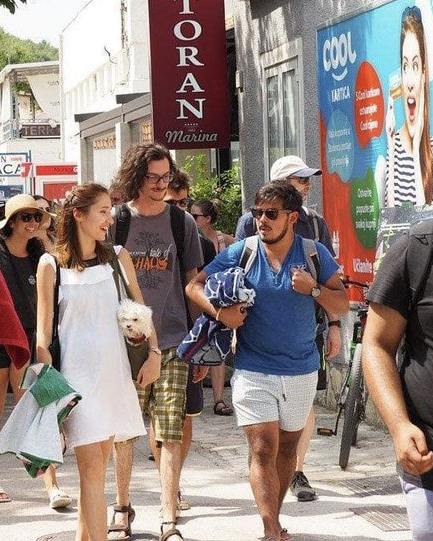
7. Tell us about the Croatian lifestyle and making friends. How has it been for you?
This is one of the most valuable parts of my life in Croatia - the people and community I belong to. Coming from Ukraine, this country is the 4th place that I have lived and I never felt more accepted anywhere before. What to say, if I managed to start speaking in Croatian only after 4 months of being here and felt confident enough to use it daily already in 9 months. Of course, there have been different situations, because Croatian people still have a lot of character on a side with "polako" living, but it only helped me to become more stable and stronger with identity. For the last 3 years, I have met my best friends and soul companions from Zagreb, Rijeka, Cres, Mali Losinj, Canada, France, Israel, Germany and many more. The amount of fun events throughout the year is overwhelming. There were no problems with making connections, since if anyone has been discovered with a bad mood - Croatian people can quickly shift the vibes. Locals don’t like it when someone is behaving weirdly or gloomy, that’s important to know.
8. Do you plan to (try and) stay in Croatia when your studies finish? Why/not?
It will certainly depend on job offers and income rate in my field since currently, this is the most important factor. But speaking long-term - yes, I would love to stay and call this place my home, while contributing to the development of the country. I and my twin sister were planning to open an art cafe to attract the creative youth of Zagreb and let them collaborate. Coming from a rich background of coffee&breakfast cult in Kyiv, we want to bring it up here, while giving enough space for designers and artists to present their works. We believe that the Croatian service market still has where to grow, what to discover and offer and it is a great segment to invest into.
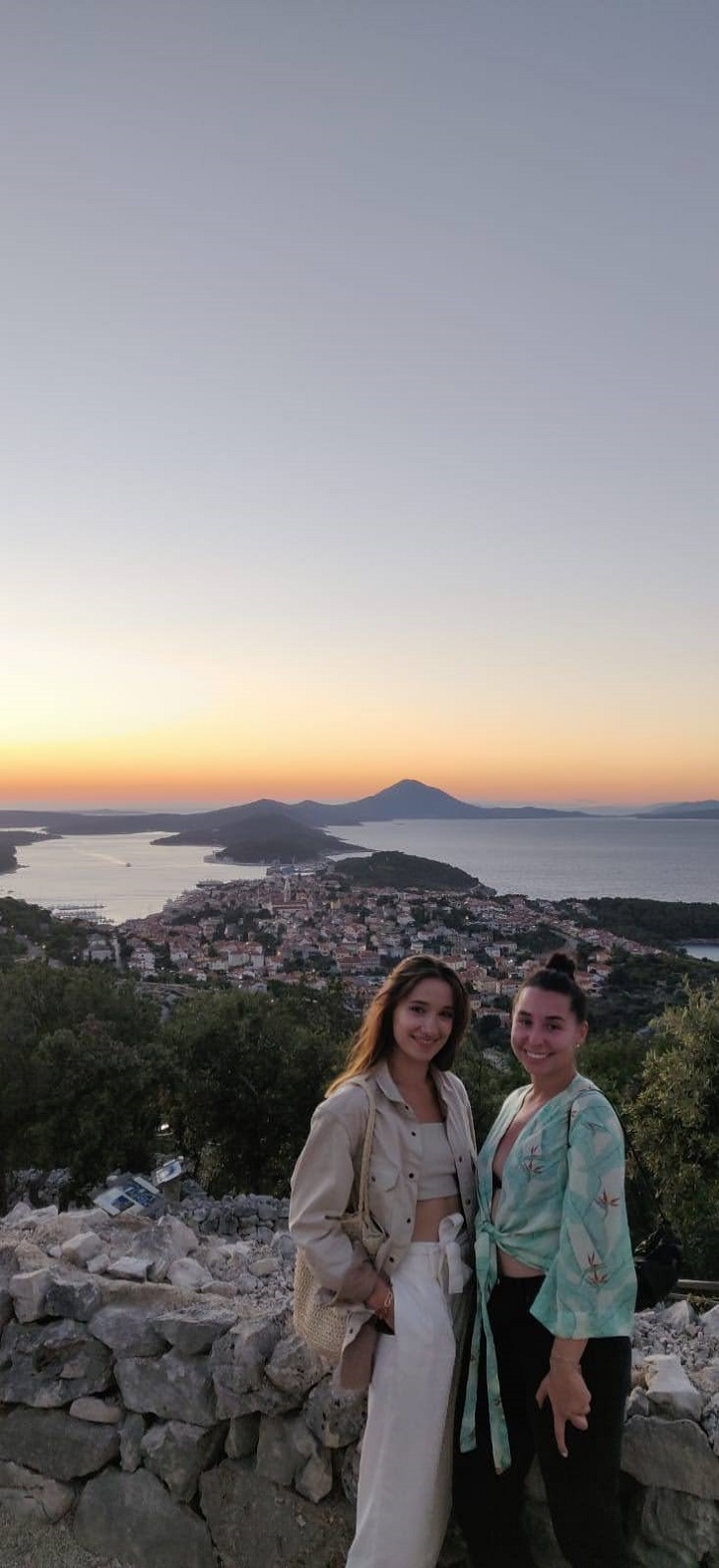
9. Three things you have enjoyed most about your experience studying in Croatia?
For the first point, I won’t be very original saying travel and nature. It is the richest country in my experience when it comes to climate and sightseeing. The second one would be my professional network and the diversity of people I met during my study, locals and foreigners - priceless knowledge and connections. And third is a local lifestyle. I adore watching after people on the street, how they drink coffee, taste wine, talk loudly, laugh and enjoy the moment. Locals blame this for being jobless and lazy, but I see it as the highest level of hedonism, exactly where genuine happiness of life is laying.
10. What advice do you have for people who are considering studying in Croatia?
I would say that there is no heaven on Earth and don’t expect that your everyday life will look like your last summer trip to Split. However if you are ready to stay humble, open, learn how to take things easy and slow - this is the country for you. Croatia is full of surprises, and I am not even speaking about the islands and the sea. Be ready to get things done your way while being innovative and daring to study a lot. And finally, be ready to have sleepless nights and long midday coffees - it is an essential here.
Are you an international student on a graduate or post-graduate course in Croatia, who would like to be featured in this series? Contact us on This email address is being protected from spambots. You need JavaScript enabled to view it. Subject Study.
To learn more about the options for studying in Croatia, check out the Total Croatia Study in Croatia guide.
For more information on courses offered by Algebra University College, visit the official website.
Meet Foreign Students Choosing Croatian Education: Mohamed Hafez from Egypt
April 1, 2022 - Among the growing number of foreigners relocating to Croatia, international students are increasingly visible. So who are these foreign students choosing Croatia, and why? In the second of a new series, we get the perspectives of life and study in Croatia through the eyes of its foreign students, continuing with Mohamed Hafez from Egypt.
Among the many foreign tongues heard around the Croatian capital these days is the growing number of students choosing to do their graduate programmes in Croatia. A safe, affordable EU country, with a rapidly expanding programme of high-quality graduate courses in English, with excellent employment opportunities upon graduation, are just some of the reasons for choosing Croatia. And the quality of that education was highlighted recently, as Algebra University College signed an academic partnership agreement with Goldsmiths, University of London (as reported previously on TCN), thereby allowing Algebra students to study under the approved programmes of one of the 500 best universities in the world according to the World University Ranking.
Despite the growing excellence of English-language graduate and post-graduate education in Croatia, the opportunities are not so well known, and so TCN - in partnership with Algebra University College - has compiled an authoritative guide to what you need to know about studying in this beautiful country. Check out the Total Croatia Study in Croatia guide.
Nothing paints the real picture of studying in a foreign country better than the real experiences of students living the day-to-day reality. In a new series on TCN, we meet some of the international students who have fallen in love with Croatia, many of whom plan to stay and work here if they can find employment. We look at the realities of life, why they chose Croatia, and what advice they have for others contemplating studying in Croatia.
Next up, alumni Mohamed Hafez from Egypt, alumni, who studied Digital Marketing at graduate level at Algebra University College.
1. You chose to study in Croatia. Tell us what were the main factors in that decision.
First, because I found the exact type of degree that I wanted to acquire at that time, the curriculum was exactly how I wanted it to be. Second, I knew that Croatia is a beautiful country that has so many things to do and enjoy. Third, maybe because Croatia is not so far from home and also the weather is relatively very good here compared to other European countries.
2. How is the experience so far? Give us some pros and cons.
Great experience, lots of things learnt academically, great support from my professors, mentors, colleagues, and friends. The two main cons of my trip are the language barrier, despite the fact that English is spoken widely in Croatia, speaking Croatian would have boosted my social experience. The second con is handling the paperwork and dealing with the red tape.
3. How was your perception of studying in Croatia different from the reality? Give us some things that have surprised you about the experience?
I didn’t really have any sort of perception prior to starting the experience and going to Croatia, I just connected with Algebra and I felt it is the place that suits me, given that it is a very technical and modern school. Even so, I was surprised by how welcoming, supportive and friendly the people here are.
4. How easy was it to do the paperwork to enroll in the study programme? Any suggestions to improve things?
I cannot recall the enrollment process but I would suggest giving the student resident permit for the length of the studies instead of the yearly renewals that take months to accomplish.
5. Tell us a little about the accommodation and the cost of living.
I cannot say the cost of living is much different from other European cities but definitely, the accommodation and apartment rentals are much less expensive which is a big thing for students.
6. Finding work is a key priority for students, both to help finance their study, but also upon graduation. How hard have you found it to find work, and what are the main obstacles?
I would say it is not easy to find a job in Croatia as a foreign student, especially the exact job you want, however, when you put enough effort into it you would probably reach it eventually. I would say the main obstacle is the language barrier.
7. Tell us about the Croatian lifestyle and making friends. How has it been for you?
The best things to enjoy as a student in Croatia is the lifestyle, reading a book and drinking a coffee for 3 hours on a great sunny day uptown. Enjoy the grocery shopping at the Plac where there is all the homegrown and homemade products. Make friends easily and hang out at the skatepark.
8. Do you plan to (try and) stay in Croatia when your studies finish? Why/not?
Yes because as long as I am having a good experience and I am able to grow personally and professionally then I have no reason to relocate.
9. Three things you have enjoyed most about your experience studying in Croatia?
First, the friends I made, the colleagues and professors I connected with are the best thing I enjoyed in my experience. Second, the mountains, the forests and the sea. Third, coffee, food, and beer.
10. What advice do you have for people who are considering studying in Croatia?
I advise them to prepare, research, and plan well, and discover the potential of the fields they want to study in Croatia, their unique points. Try to learn some Croatian language, the sooner the better in order to get the most out of the experience.
Are you an international student on a graduate or post-graduate course in Croatia, who would like to be featured in this series? Contact us on This email address is being protected from spambots. You need JavaScript enabled to view it. Subject Study.
To learn more about the options for studying in Croatia, check out the Total Croatia Study in Croatia guide.
For more information on courses offered by Algebra University College, visit the official website.
Algebra and Goldsmiths, University of London Sign Academic Partnership Agreement
January 26, 2022 - An Academic Partnership Agreement has been signed between Algebra and Goldsmiths, University of London to provide students with Croatian and British degrees. Algebra students will be able to study under the approved programmes of one of the 500 best universities in the world according to the World University Ranking.
After the successful evaluation of study programs and the institution itself, Algebra has become a strategic academic partner of one of the oldest colleges of the University of London. Due to inter-institutional cooperation between Algebra and Goldsmiths, University of London, starting from the academic year 2022/2023, students will be able to study in Zagreb according to UK and EU standards and thus obtain both Croatian and British degrees.
Cooperation between Algebra and Goldsmiths opens numerous opportunities for Croatian and foreign students to whom the British degree will be significantly more accessible, but also further motivates them to choose Croatia as their academic destination and support the growth and sustainability of the Croatian economy with their knowledge and skills.
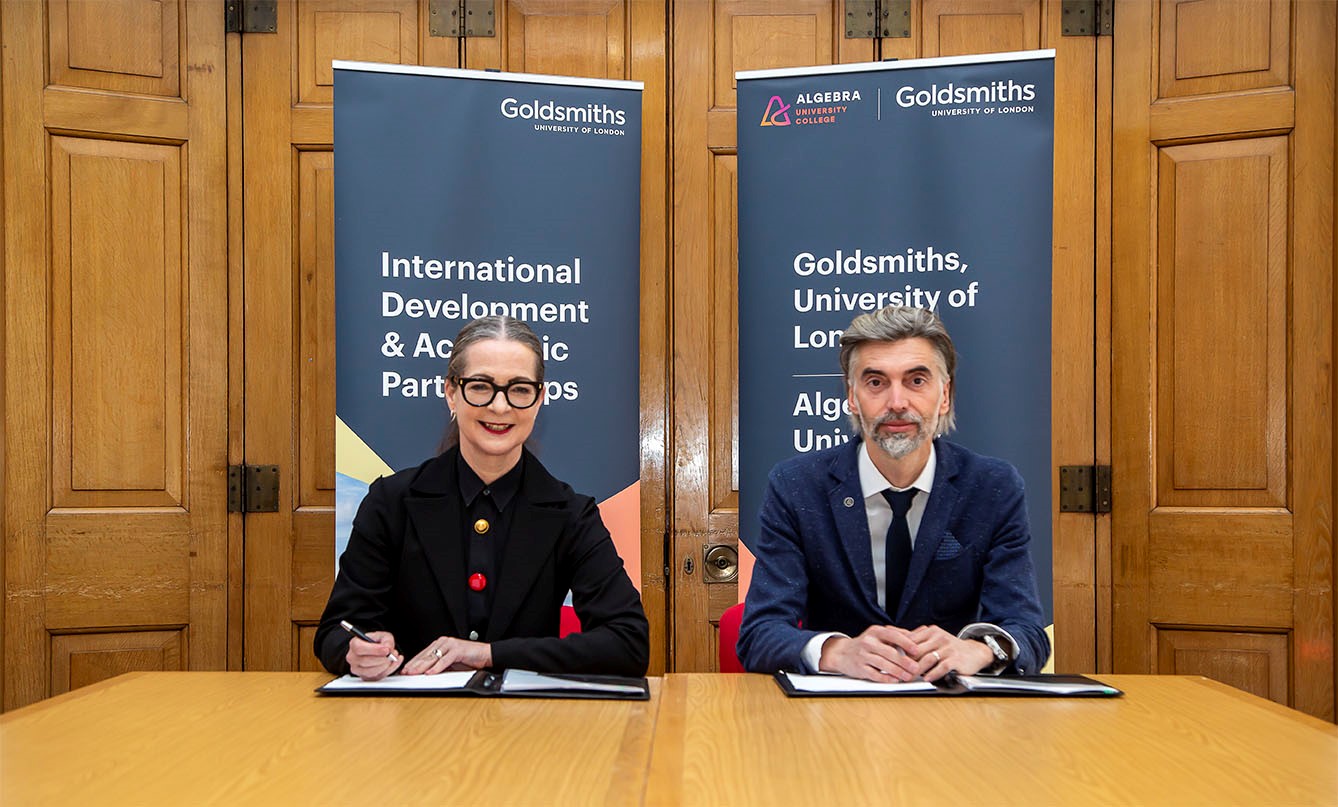
The Algebra and Goldsmiths Academic Partnership Agreement is the result of a two-year validation process of Algebra's study programmes, student support framework and quality assurance systems, conducted by British experts and heads of study programmes with their Croatian colleagues: study and department heads, teachers, assistants, vice deans, teaching support department, international application office, examination coordinators and other professional services of Algebra. After analysing the study programmes, their contents and learning outcomes and the quality assurance system, the validation committee established that all the preconditions for cooperation have been met.
Deputy Warden of Goldsmiths, Professor Elisabeth Hill said: “We will collaborate with colleagues at Algebra in ensuring these academic programmes meet the highest quality and standards, are dynamic and responsive to developments in the industry, and are informed by the latest research and advancements in teaching practice. We are confident that students will enjoy the highest quality learning experiences, undertaking cutting-edge academic programmes that will equip them with the skills to thrive in the fast-paced digital and creative sectors and make a real difference in their communities.”
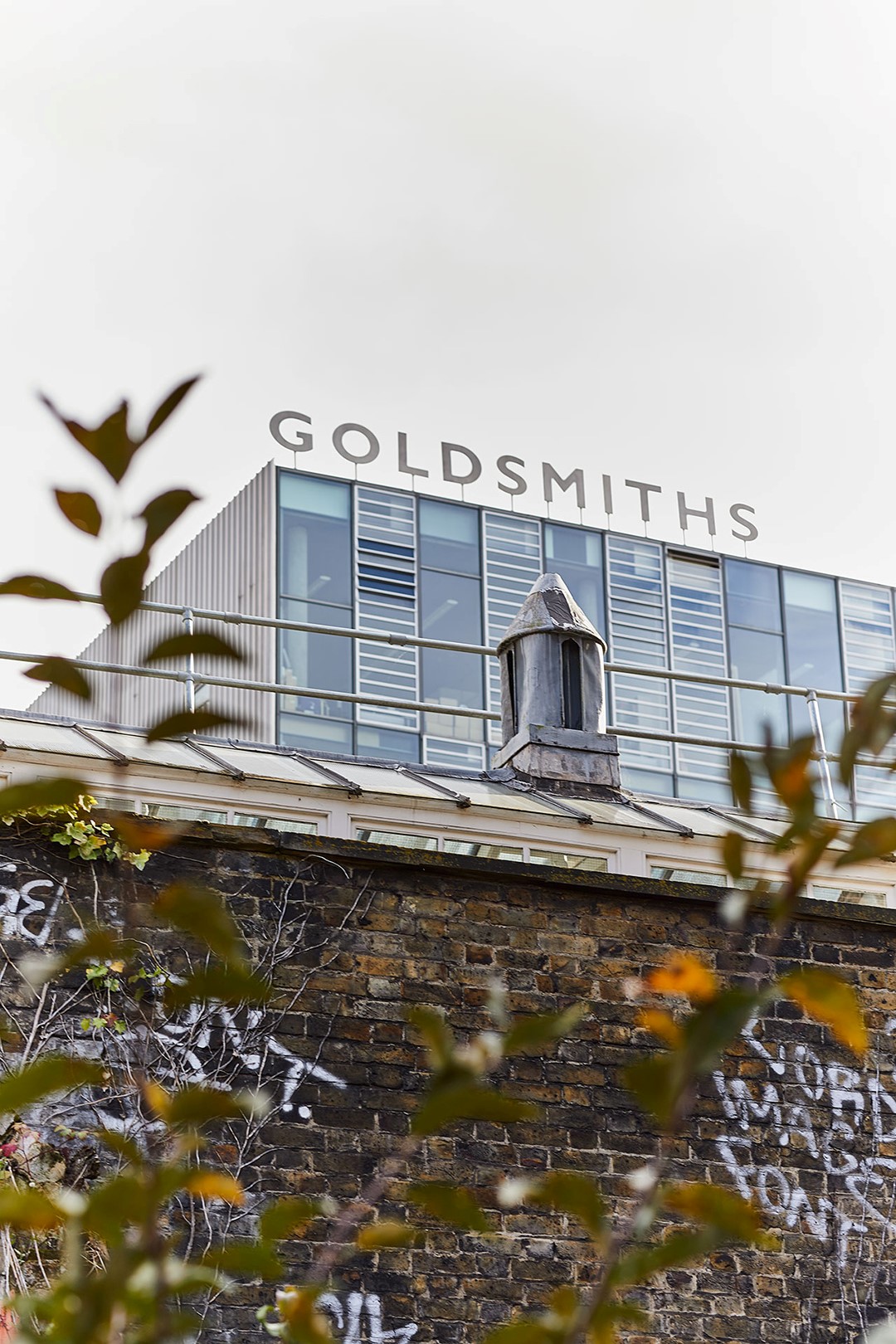
Starting from the academic year 2022/2023, Algebra students will be able to study Design, 3D Design, Multimedia Computing, Digital Marketing, Data Science, Software Engineering, Systems Engineering or Game Development according to programmes validated by one of the 500 best universities in the world. Algebra students who opt for this option will take courses in English. The conditions for enrolment are the same as the conditions for the enrolment of studies conducted in Croatian, with a mandatory test of English language skills.
“In two cycles of audits of the quality assurance system conducted by Croatian Agency for Science and Higher Education, Algebra University College received the highest possible grades and quality certificates. Our highly developed quality assurance system was a kind of ticket to open a dialogue with Goldsmiths and a pledge for this great success that we achieved by signing this Academic Partnership Agreement. During the process of validation of our study programmes, we were additionally convinced of the quality of our partners from London, which prompted us to start double-marking all exams in the current academic year and providing development-oriented feedback to students after each test. These and other approaches that we have adopted, and which are partly the reason why British higher education system is still at the very top of the world, have become our norm in the implementation of study programmes,” said Mislav Balković, Algebra University College Dean, during the signing ceremony of the partnership agreement in London.
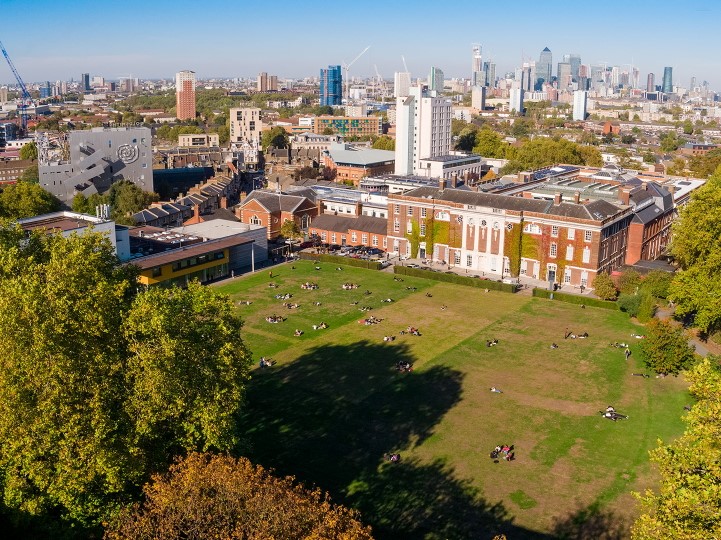
The goal of this collaboration is to increase the number of students studying in English and contribute to the Algebra Development Strategy, which targets 2,300 enrolled students by the end of 2026, of which at least 500 are foreigners. Although the price of such study is somewhat higher than the average price of studies in Croatia, from the perspective of parents and students, this means that with a much lower financial cost and without the cost of living in a relatively expensive environment, students earn two esteemed degrees, trusted by Croatian and British employers.
With this partnership, Algebra forms one of the most potent international hubs for students in Croatia which launched more than 1,000 candidates and students in the past five years. This partnership between the British and Croatian higher educational institutions also opens the door to Algebra graduates who will be interested in postgraduate specialization in the UK. The multinational and multicultural environment that today already exists on Algebra in Zagreb, and is consisted of students from India, Turkey, Brazil, China, USA, Ukraine, Russia, Spain, France, Iran, Kenya, Nigeria, Italy, Macedonia, Kosovo, Bosnia and Herzegovina, Pakistan, Bangladesh, and the UAE, will soon become even more attractive to a growing number of students coming from Asia, South America, Africa, the Middle East and rest of Europe to Croatia.
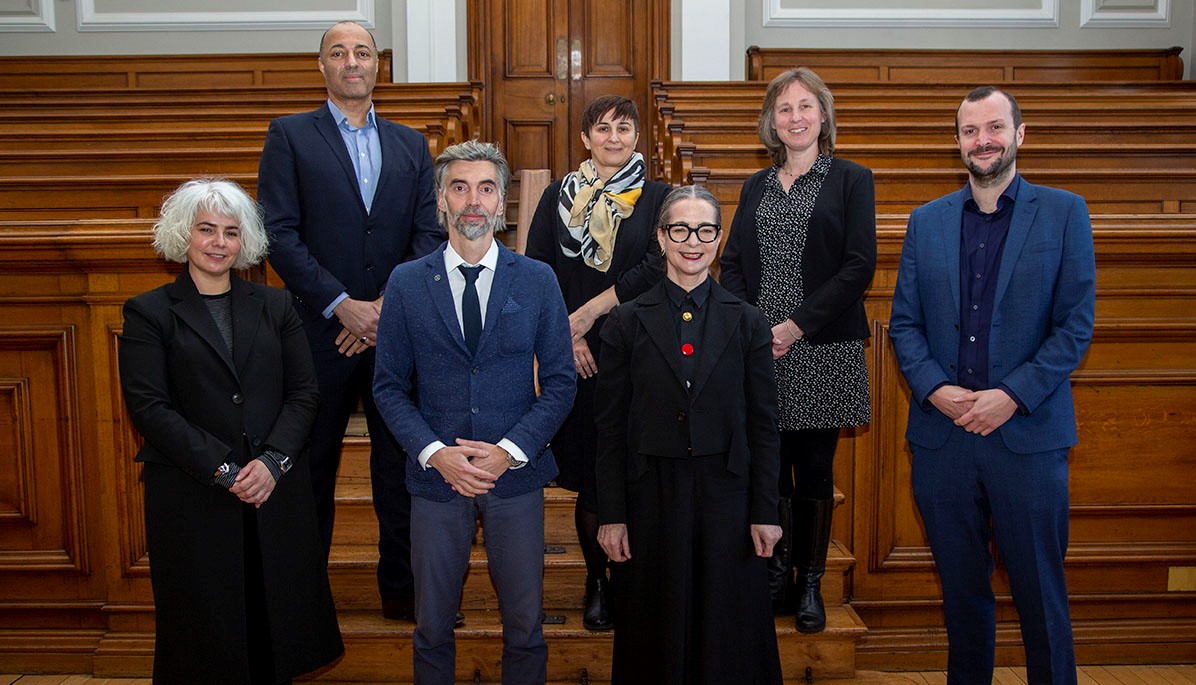
Professor Frances Corner OBE, Warden of Goldsmiths, University of London, said: “We are truly proud of our international partnerships at Goldsmiths, and I am delighted that Algebra University College is joining this global community. This partnership will provide more students around the world with access to a Goldsmiths degree. But more than that, it will bring opportunities to build on the strengths of our two institutions, develop our collaboration between Algebra and Goldsmiths into new and exciting areas, and ensure all students - wherever they study - have a high quality, rewarding and impactful learning experience. I look forward to a rewarding relationship in the years ahead.”
Information and applications for studies ending with a British and Croatian degree are available here. Starting now, high school graduates can choose Algebra undergraduate studies in English through the official portal of the Agency for Science and Higher Education.
For more, check out our dedicated lifestyle section.
Nomad Rescue: New Croatian App Created as One-Stop Shop for Digital Nomads
November 30, 2021 - Nomad Rescue is a new one-stop web application for digital nomads, developed by Algebra University College graduate students.
A team of graduate students from Algebra University College, "The Nomads," has developed an application that makes it easier for digital nomads to navigate the country they have chosen while answering all practical and operational questions about life in the country, reports Index.hr.
There has been a lot of talk in Croatia to attract digital nomads to live and work in the country, which has been successfully implemented in terms of regulations that allow individuals in Croatia. Thus, Croatia became one of the first countries globally with such an elaborate program for attracting digital nomads.
It is this idea that the Algebra University graduate students decided to explore and expand in more detail, where an innovative project program has recently been implemented as a compulsory course in all graduate studies.
Students acquire entrepreneurial skills during this two-year graduate study program and go through a program similar to waiting for startups in each incubator; they also have mentors available to advise them. There are no exams, no tests, but each individual's contribution is evaluated as well as the overall team result - which together represents an innovative way of practical teaching that we have not had the opportunity to see so far.
A unique part of this project is that it brings together students from various graduate studies conducted by Algebra University - software engineering, digital marketing, and data science - so students meet with different skills and different previous education, who often did not have the opportunity to get acquainted earlier in their studies, which makes exchanging ideas, knowledge, and working on the project much more exciting and fun.
"Our motto is that students through this course should learn how to reach the goal - after that, each new endeavor is a step forward for them, and they have a clear feeling that they will succeed; it's just a question of when. In other words, it's just a matter of their persistence," emphasizes Maja Brkljačić, one of the course leaders and head of business development in the longest-lived and most relevant startup incubator in the country, Algebra LAB.
One-stop-shop for digital nomads
Seven members of the "The Nomads" had fun studying the lifestyle of digital nomads, which led to the idea of developing a web application, "Nomad Rescue," a one-stop shop for digital nomads. Their research of the problems digital nomads face has shown that it is challenging to relocate to another location for some. In contrast, for others, the situations they face after relocating are much more challenging.
Andro Žonja and Ivan Jakovljević, graduate students of software engineering, Nina Tudor, Marta Krznar and Filip Puljić, graduate students of digital marketing, and Antonio Akrapović and Mateja Novaković, who are studying at the graduate study of data science, designed an application that would quickly and efficiently offer nomads reliable information on various topics.
Nomad Rescue is designed as a social network that integrates a program to search for accommodation for longer stays. Its users will be able to use this social network as a tool to meet other digital nomads in their location and thus find roommates. It will also feature an accommodation search tool for those nomads staying for a more extended period and a module that students call a "virtual guide" that will allow users to integrate into the new environment more easily.
"It is a platform that tries to facilitate the selection of a new living environment, finding accommodation, reviewing the content offered by nearby locations, and meeting other nomads through the social network," explains Ivan Jakovljević.
"I came up with the idea almost a year before we started this project," says Nina Tudor, a graduate student in digital marketing and leader of the team.
"I follow people who travel and work and live the life of a digital nomad, and that is something I would personally like to do in a few years. I wanted to do this for myself, and as the trend of living as a digital nomad is constantly growing, I knew it could be interesting to others. The idea was perhaps too ambitious for independent production, so I am thrilled that others recognized the idea and, in this way, it came to life. Of course, the idea went through a couple of phases of changes, and in the format in which it is today, everyone in the team deserves credit," explains Nina.
The digital nomad trend is constantly growing, especially since the pandemic started. Many employees do not want to go back to offices, and companies must adapt to new labor market demands. "The pandemic has accelerated the trend of working from home, which enables employees from the IT sector and related professions to travel and stay in other areas. Maybe because of the climate, lower living costs or simply because they are interested in other cultures," says Ivan Jakovljević.
Nina says that she spent many years working in tourism and talking to people from different countries, so she concluded that many tourists like to stay in Croatia and return from summer to summer. "That's why I wasn't so surprised by the interest in the digital nomad program in Croatia. Moreover, I'm happy that people like Jan de Jong recognized the importance of such a program and made an effort to make it happen," says Nina Tudor.
Although Croatia is one of the first countries to introduce a program for digital nomads, the application was designed by students to be easily applied to any country.
"Of course, data entry is a challenge in such cases, but our application relies heavily on global information repositories offered by Amazon and Google," explains Ivan Jakovljevic.
"We believe that local governments or tourist boards could use the application to promote their locality towards digital nomads. One of the best indicators of how much a certain environment is favorable to digital nomads is the availability of information in digital form," says Ivan.
Mentors who help the student team develop the project say that it is logical to recognize this topic.
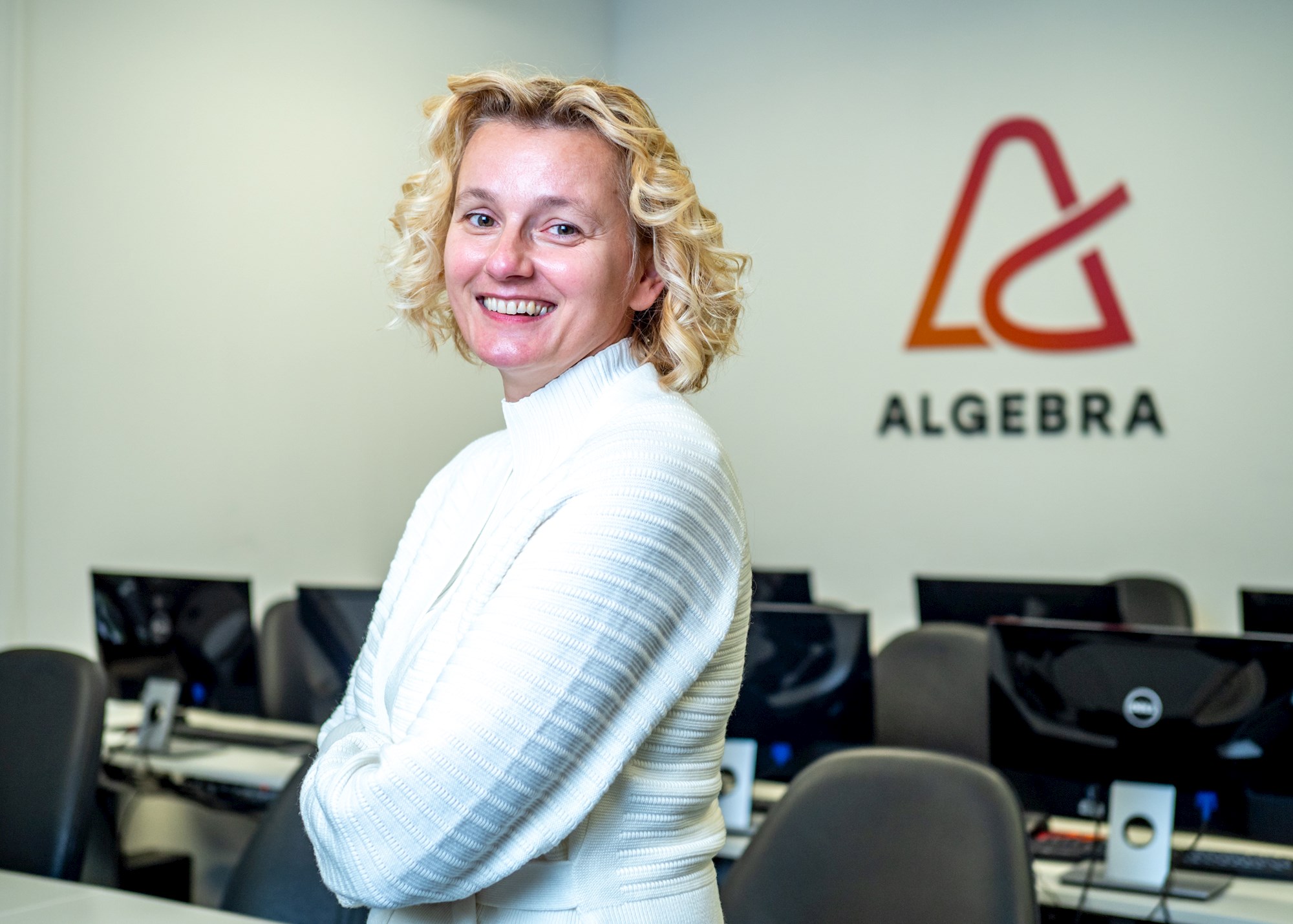
"It is expected and quite logical that the students of this generation decided on this topic because the idea of digital nomads is something that will be very prominent and present in their work experience. Moreover, Algebra students from abroad are also digital nomads, in a way. Currently, we have 2-3 startups in Croatia working on this topic, so it is very hot, and the need for such a platform is real," emphasizes Maja Brkljačić.
Such projects, once launched, can significantly contribute to the country’s success and attractiveness as a destination for digital nomads. These people travel efficiently and quickly, change their geographical location, and just as easily and quickly need to get the critical information. The project is set up in a scalable way. It can be easily replicated to other countries, which is crucial for finding sources of funding because VC funds and EU funds strongly prefer global or at least European solutions.
"From this group interdisciplinary project, I learned a lot about the marketing side of development and product design itself. I also received knowledge from colleagues in the field of data science about the use and management of information and how to implement it in our product," says Andro Žonja, a programmer who develops the back-end, i.e., the server-side of the application, which consists of a layer with business logic and a database and enables communication internally and with the client part of the application.
On the other hand, one of the future graduates of data science, Mateja Novaković, also says that "interdisciplinary cooperation is quite common today and is encouraged in all spheres of life and work." She liked working with fellow program engineering students because it allowed her to go beyond the tasks she has as a member of the data science team.
"I think this is one of the more important subjects because it prepares us for a real labor market where at some point we will need to work with people from different industries and different ways of thinking. So it is exciting for me to work on the project because of all the knowledge that I will get, not only from the mentors we work with but also from colleagues in the team," emphasizes Nina Tudor.
Antonio Akrapović says that just like any other team working on a project, without a reasonable exchange of knowledge and skills, "the project could not even start, so this synergy and exchange of opinions is crucial." Antonio was in charge of the data collection strategy and its application from data science to improve the user experience when searching for the desired service most efficiently.
But just like in the real world, not everything is always ideal - and one learns through challenges. Ivan Jakovljević especially emphasizes good communication as a prerequisite for integration and the success of each team:
"The fact that members come from different educational backgrounds enriches ideas and views on the problem, but also sometimes makes communication difficult. As a result, each newly formed team has a relatively low level of efficiency given the potential of its members. Over time, the team adopts a common language manifested in norms and a clearly defined work process. Only after that step can the team realize its potential. However, to get to that point requires quality communication and overcoming certain obstacles, which is challenging to learn from books but requires the experience of teamwork.
The mentor's task is to help the team with their knowledge and experience during the two years of project development. Of course, there are always several challenges.
"The biggest challenges arose with project modules that students have not dealt with so far, such as security aspects and the use of certificates, and data collection, which made it difficult to analyze and evaluate such tasks because students did not have reference experience with similar functionalities," says Aleksander Radovan, Algebra lecturer and expert in Java software solution development. But such situations are good because students have the opportunity to acquire knowledge that they have not yet encountered while studying or working on real projects.
Aleksander Radovan advised a team of students in the segment of software engineering and the use of current technologies in developing solutions.
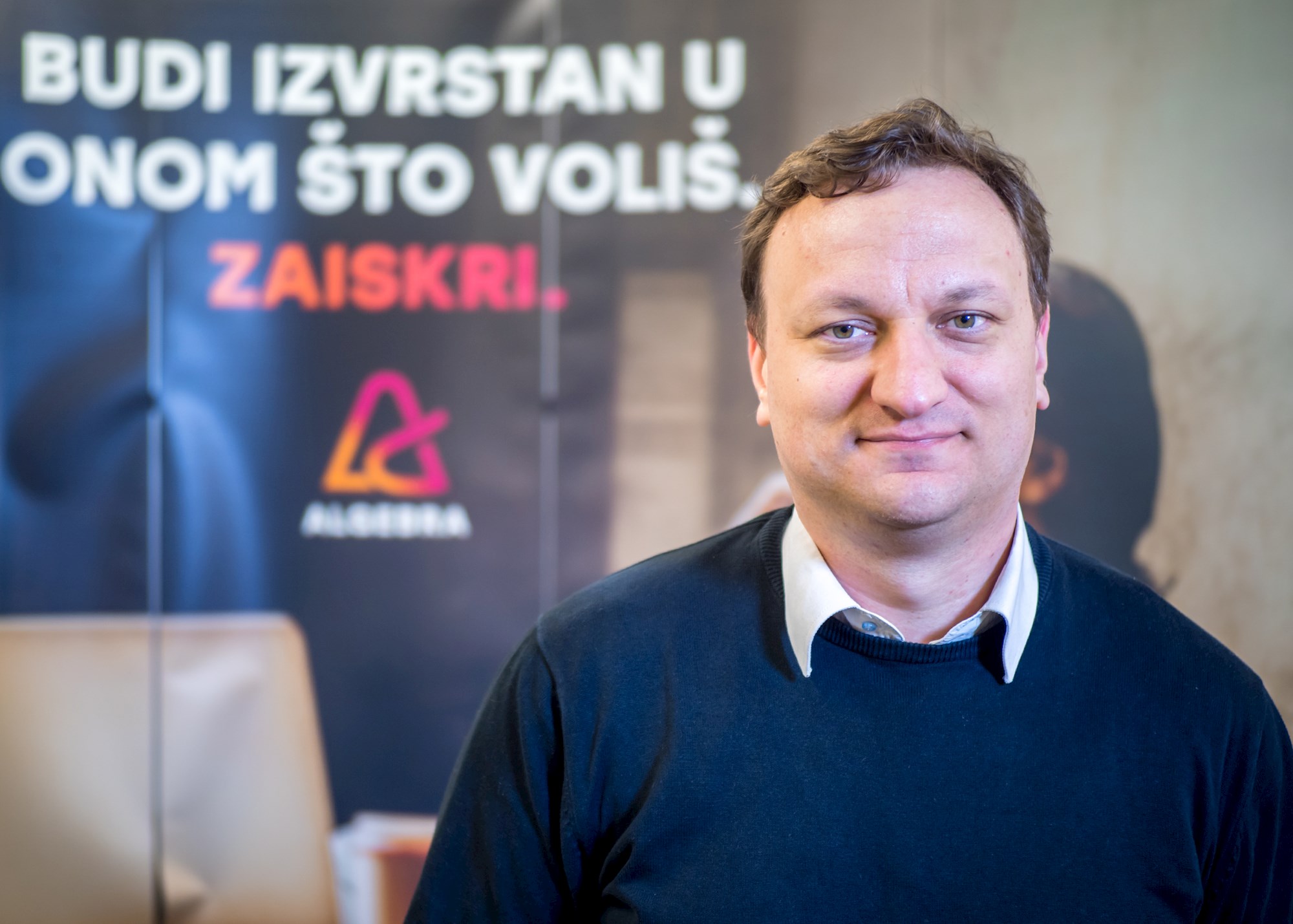
"In such situations, we helped students by adding a task related to research and development - R&D - and, after discovering how they can implement certain functionality that was a challenge for them, in the next project sprint, i.e., intensive work with a mentor, I can add the job of creating specific functionality," explains Radovan.
It is crucial, just like with any other startup, that students avoid pitfalls when developing projects.
"Most startups are designed in a way that their founders start from their own needs, believing that if the product is helpful to them, then it will probably be beneficial to others. However, such an assumption needs to be verified or validated by market research, which is a rather complicated procedure.
Our biggest challenge was to check if our ideas seem helpful to other people and try to rank them according to market interest," says Ivan Jakovljević.
Finally, how to successfully launch a new web application with such international solid competition arises. Maja Brkljačić, Business Development Manager at Algebra LAB and who has extensive experience in mentoring and organizing the incubation process for many startups, can offer advice not only to this innovative team but also to others working on similar projects in their startups.
“First and foremost, I would say: know your customer. The market for mobile applications, but also web applications, is a shark pool. In October this year alone, 69,000 new mobile appointments were announced on the Google Play Store. So for someone to want to install your application on their mobile phone or use your web service, they must be motivated," emphasizes Maja Brkljačić.
Then "you need to know how to reach that user; how they can find you among more than half a million new applications a year."
"I would say that the communication process must be as fast and simple as possible - the digital age does not suffer delays, technical problems, waiting. Which means your app needs to work perfectly. In other words - it is better to have a smaller number of functionalities when entering the market, but the degree of their refinement is as high as possible," she concludes.
Ultimately, the "Nomad Rescue" team gains valuable and vital experience and knowledge of how developing such a project in practice looks. Although this knowledge is, for the most part, actually an extension of what has already been learned during their studies, they emphasize that it is always necessary to acquire knowledge outside the formal educational process.
"It is necessary to acquire knowledge independently and outside the framework prescribed by the study curriculum. However, the knowledge we gained from different subjects proved extremely useful in certain application development steps. For example, in the field of software engineering, these are topics such as how to organize large amounts of data to be easily accessible for analysis, how to containerize an application to run on multiple computers, cryptography for sensitive data protection, and other technical topics that are crucial for the success of our project," sums up Ivan Jakovljević.
This course teaches students to neglect their domain specializations in one section and look for a common language with other colleagues.
“We ask them to participate, as much as possible, together in working on different tasks: so software developers have to start communicating with end-users, which is a very new and often surprising experience for them. At the same time, product developers develop a functional specification and face, for example, how difficult it is to make changes to functionalities once they have been developed. So tomorrow, when they will work on similar complex projects, we expect that our students will communicate much better and understand their colleagues in other departments," concludes Maja Brkljačić.
To read more about lifestyle in Croatia, follow TCN's dedicated page.


